Submitted by WA Contents
OHLAB renovates two historic buildings with noble materials and contrasting elements in Palma
Spain Architecture News - Nov 21, 2022 - 13:51 1668 views
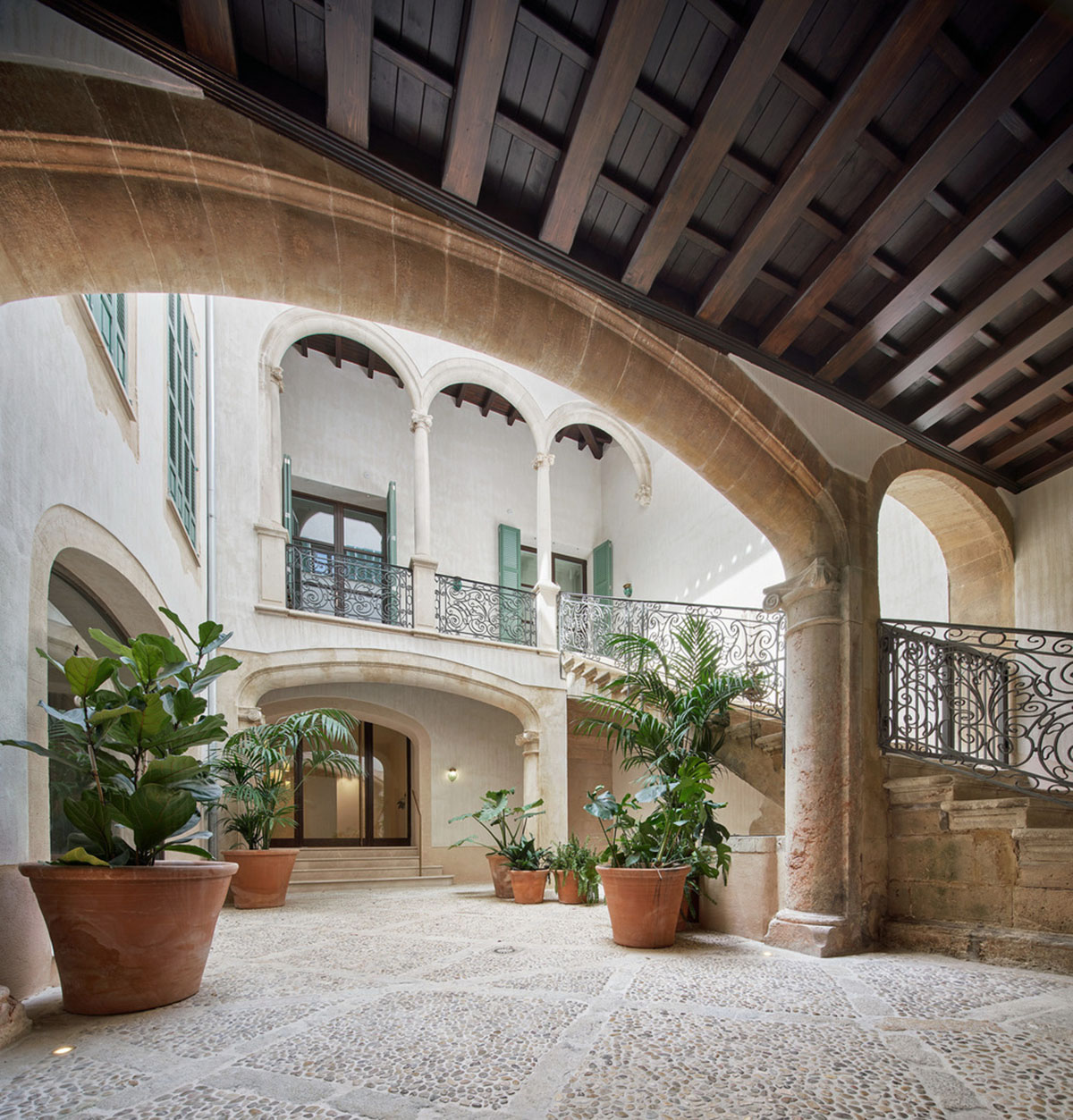
Palma de Mallorca-based architecture practice OHLAB has renovated two historic buildings with a careful intervention, incorporating noble materials and contrasting elements in the Spanish city of Palma de Mallorca, Spain.
Named Can Satacilia, the complex, encompassing a total of a 3,300-square-metre area, consists of 15 apartments and common areas.
Conceived as a careful renovation of two buildings, the old buildings are located in the heart of Palma de Mallorca's old town.
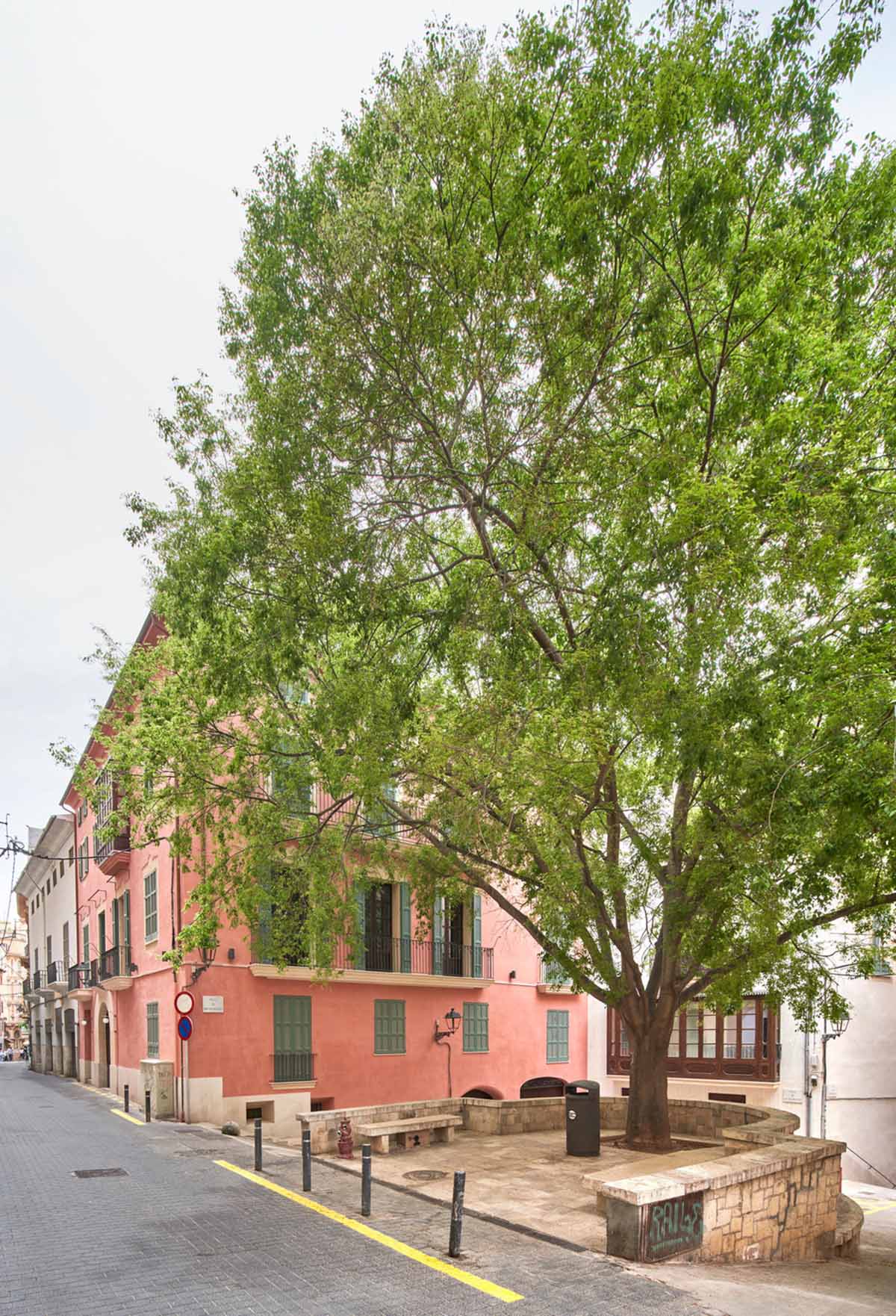
Square - Building
According to the studio, in city records dating back to 1576, the main building appears as Can Santacilia, although its origins date back to the 12th or 13th century.
Before the renovation process, the existing building dated back to the 17th century, later the building was renovated in the 18th century.
The historic complex was also renovated during the 20th century to be divided and converted into several dwellings, being significantly modified from its original state.

Square - Building
As the studio explained, the main courtyard was not preserved properly, and the structure needed to be restored, as well as its main facade at Tagamanent square, which preserves part of the 18th century decor.
"Therefore, although the building had a history of more than 400 years, it had been largely modified and distorted by the time the firm began the project," said OHLAB, a Spanish architecture office directed by Paloma Hernaiz and Jaime Oliver.
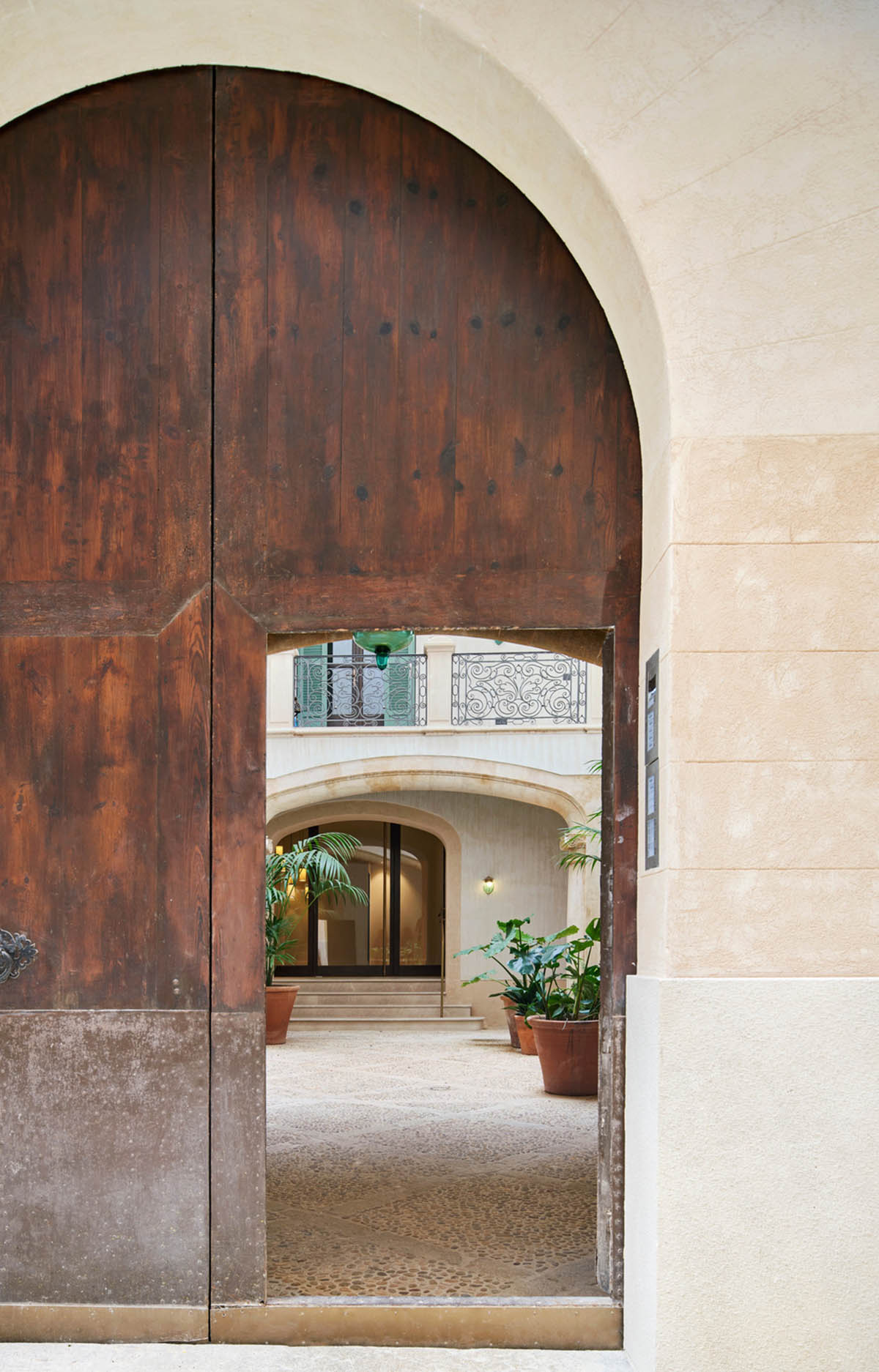
Entrance
One of the main challenges during the renovation has been sensitivity to historical responsibilities, which includes investigating different interventions over time to explore, improve and develop the main architectural elements and spaces.
To achieve this, the firm avoided eliminating or concealing alterations that have occurred throughout history in order to recover an ideal past that was not precisely known, opting instead to discover different stages and interventions by recognizing elements of value in each of them.
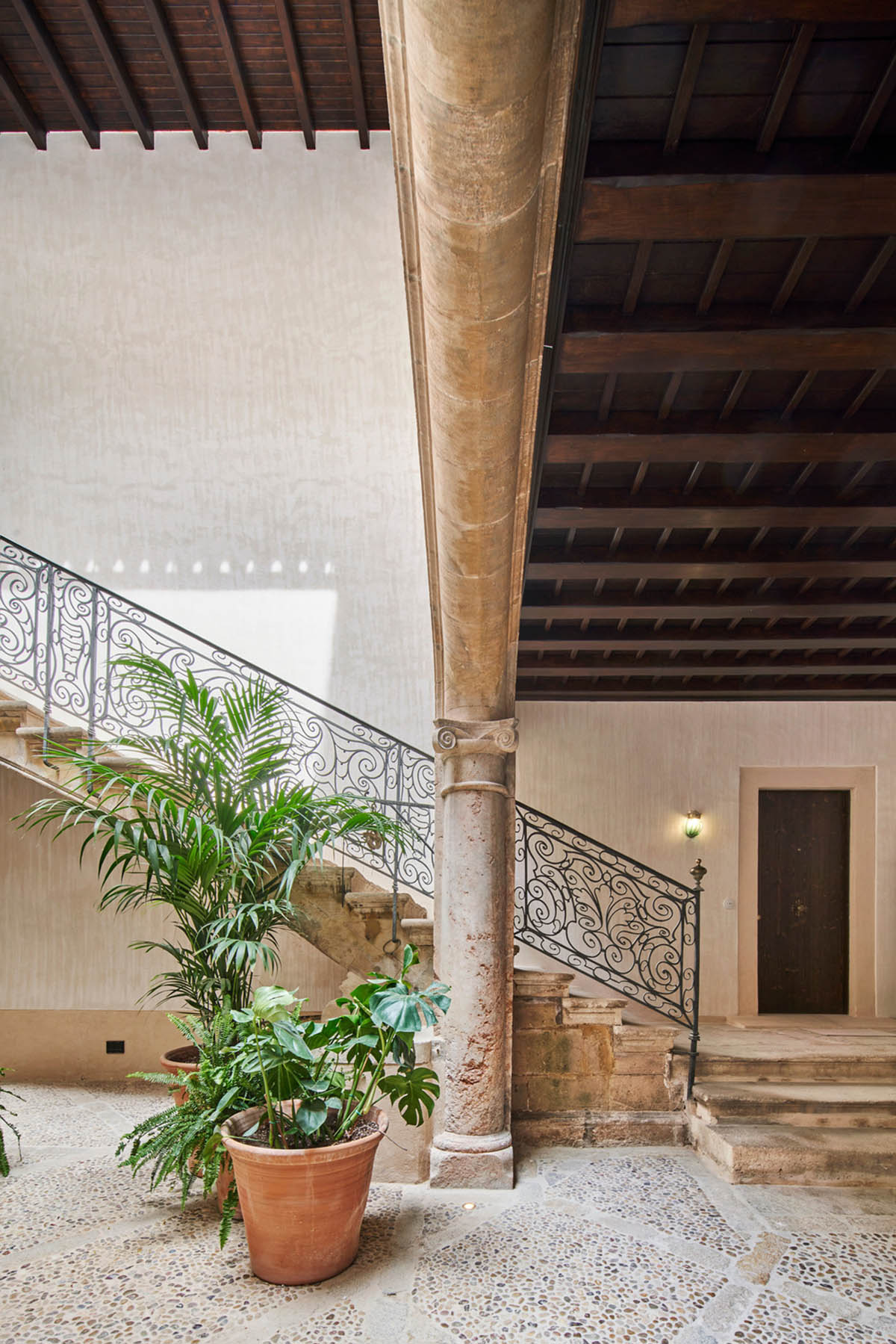
Courtyard
Another key challenge for the architects was to make the operation efficient, and to integrate the building back into the day-to-day activities of the city, so the firm updated its spaces and prepared it for use in the 21st century.
On one hand, the building's key elements and spaces needed to be a modern, be a comfortable residential building with all the services and facilities adapted to a contemporary lifestyle.
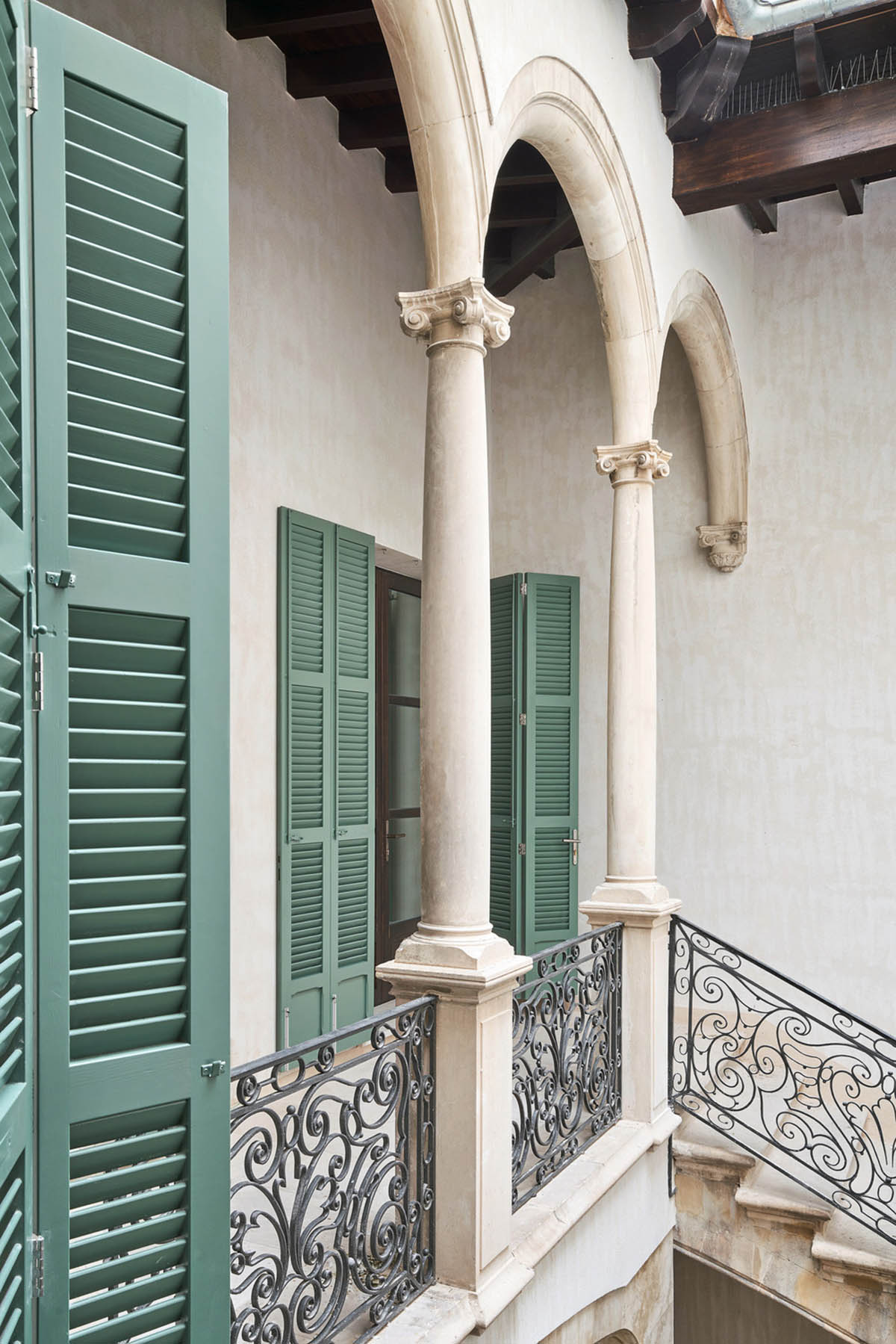
Courtyard
On the other hand, since the studio faced with a complex and compartmentalized structure, the architects paid attention to the challenges of a 17th century façade and volume, protected, extremely rigid, and difficult to modify.
Based on all these contextual sensibilities, the renovation project takes advantage of the complexity of the existing building as a potential to generate unexpected spaces where each dwelling is totally different.
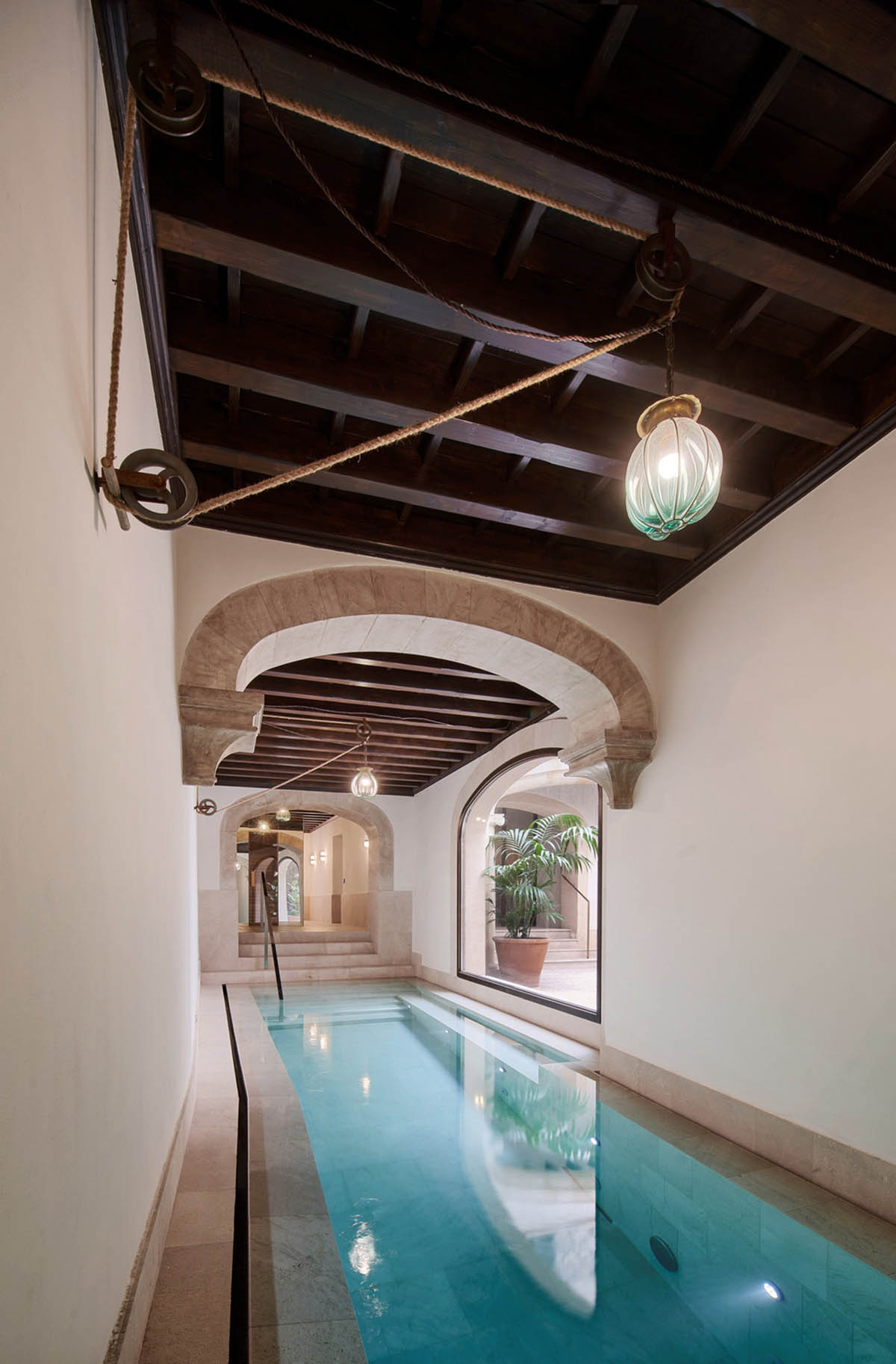
Pool
The intervention resolves each dwelling with a distribution and individualized and unique solutions, while transforming the entire building into a proposal that bases its uniqueness on the recovery of the historical essence of the building and a commitment to contemporaneity.
The transition between materials and the use of materials were one of the main elements in renewal. At Can Satacilia, the studio has paid special attention to the selection of materials by using natural, noble, local materials in order to emphasize the building’s history and Mediterranean essence.
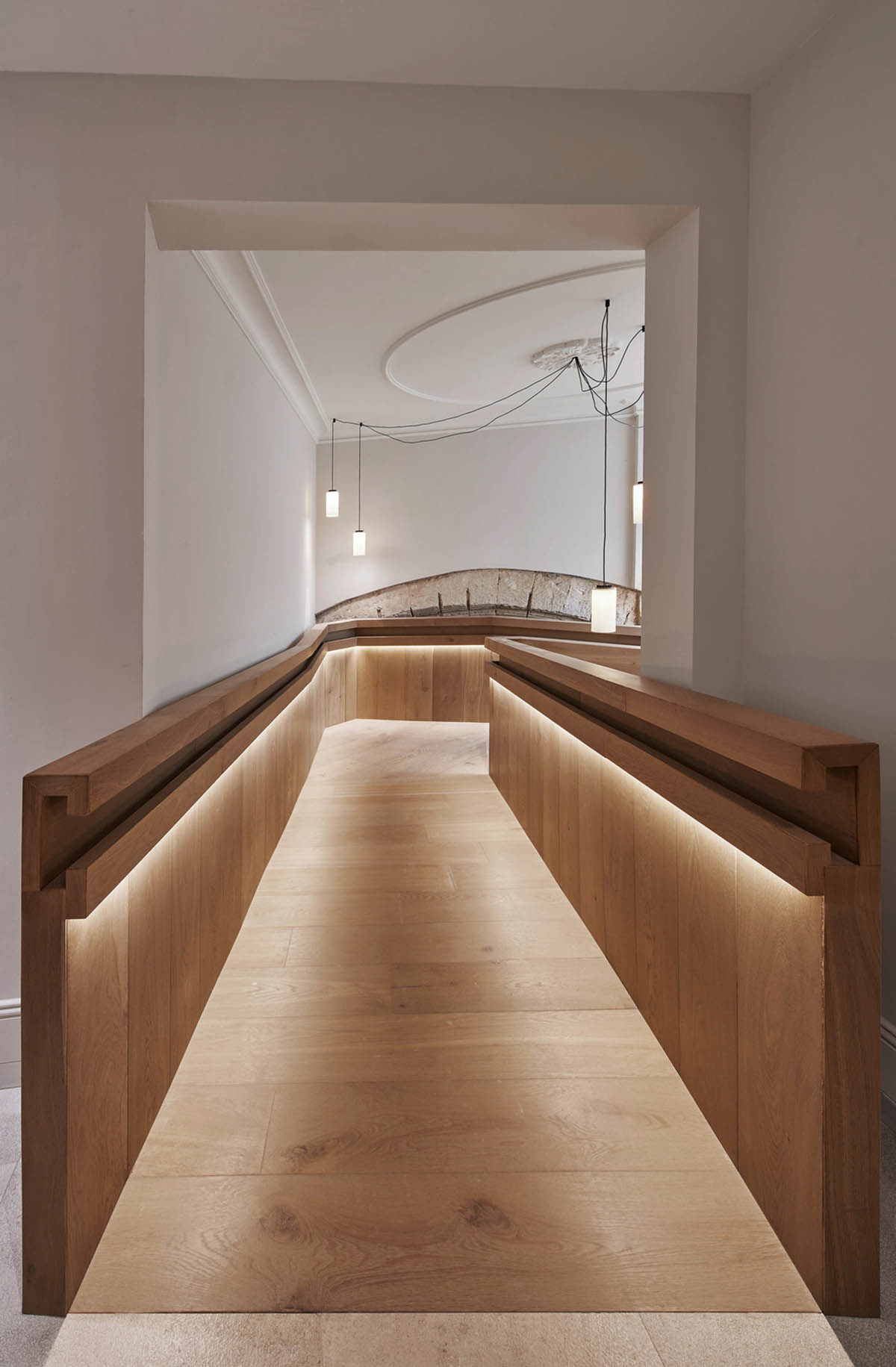
Wooden walkway
The studio uses a simple palette of natural materials that encompass the entire project, combining the restoration of historical elements such as wood carpentry, stone and wood structural elements, plaster and wood moldings, wooden coffered ceilings, mortar and lime coatings, stone and wood ceramic floors, and wrought ironwork.
Along with these natural references, a careful selection of noble materials contrasts, including antique bronze pieces, local stones, mirrored cloths, porcelain details, and local linen and cotton textiles.
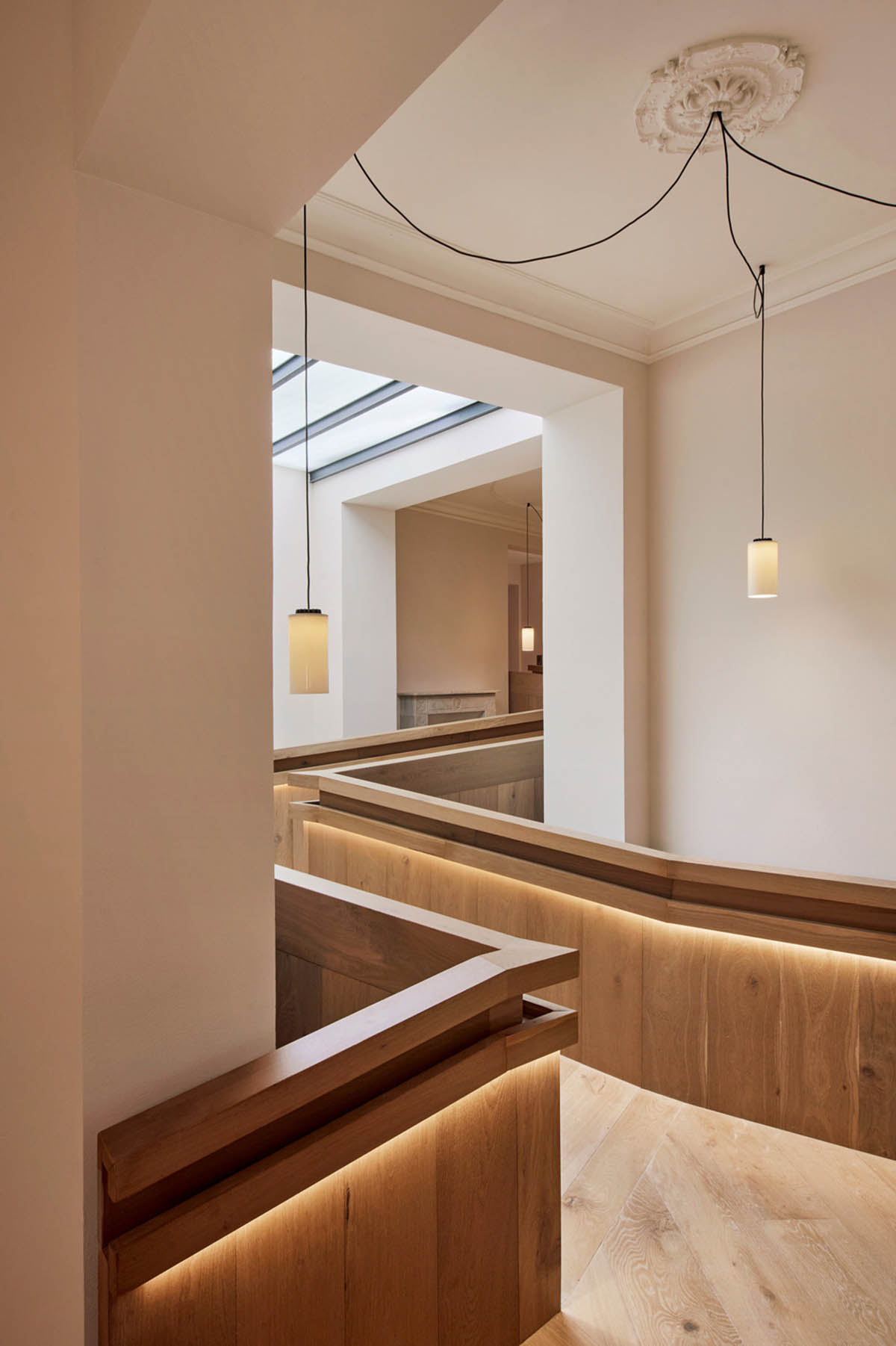
Wooden walkway
The project also recovers the entrance courtyard that had been distorted through previous modifications, restoring the old splendor of an area so deeply rooted in the classic typology of noble dwellings in Palma de Mallorca's old town.
The courtyard becomes the main entrance to the heart of the building, and opens onto the landscaped terraces and communal areas, including a gym and an indoor pool with a spa which opens directly onto the courtyard.
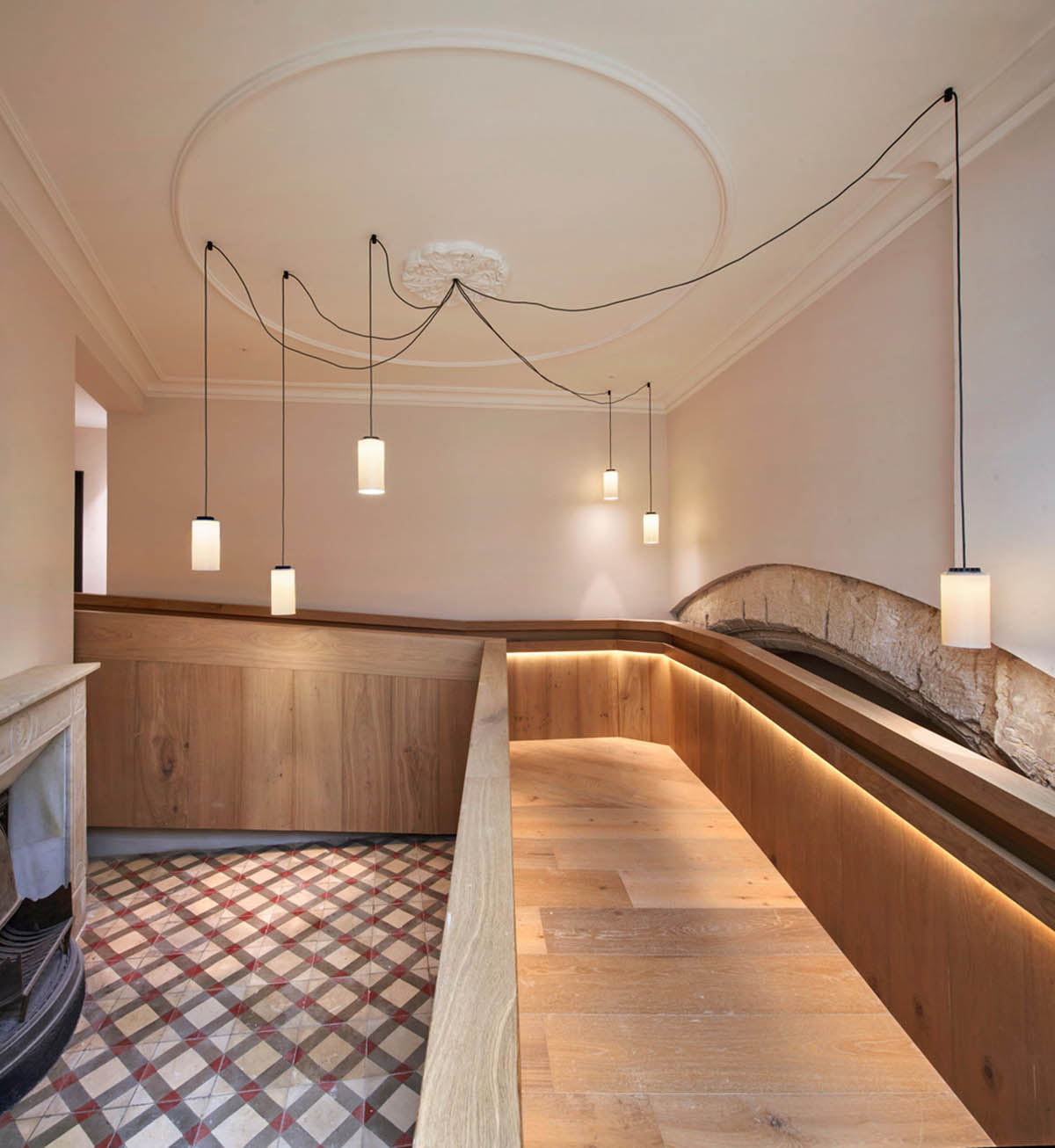
Wooden walkway
A second inner courtyard has been recovered as part of a private home garden, in addition to five terraces for different homes from which you can enjoy views over the rooftops of the city.
Despite the constructive restrictions of a historical renovation in a listed building, the project has been designed from the beginning with sustainability parameters to maximize its energy efficiency, increasing thermal insulation, taking care of thermal bridges throughout its envelope, and using an efficient centralized air conditioning system.
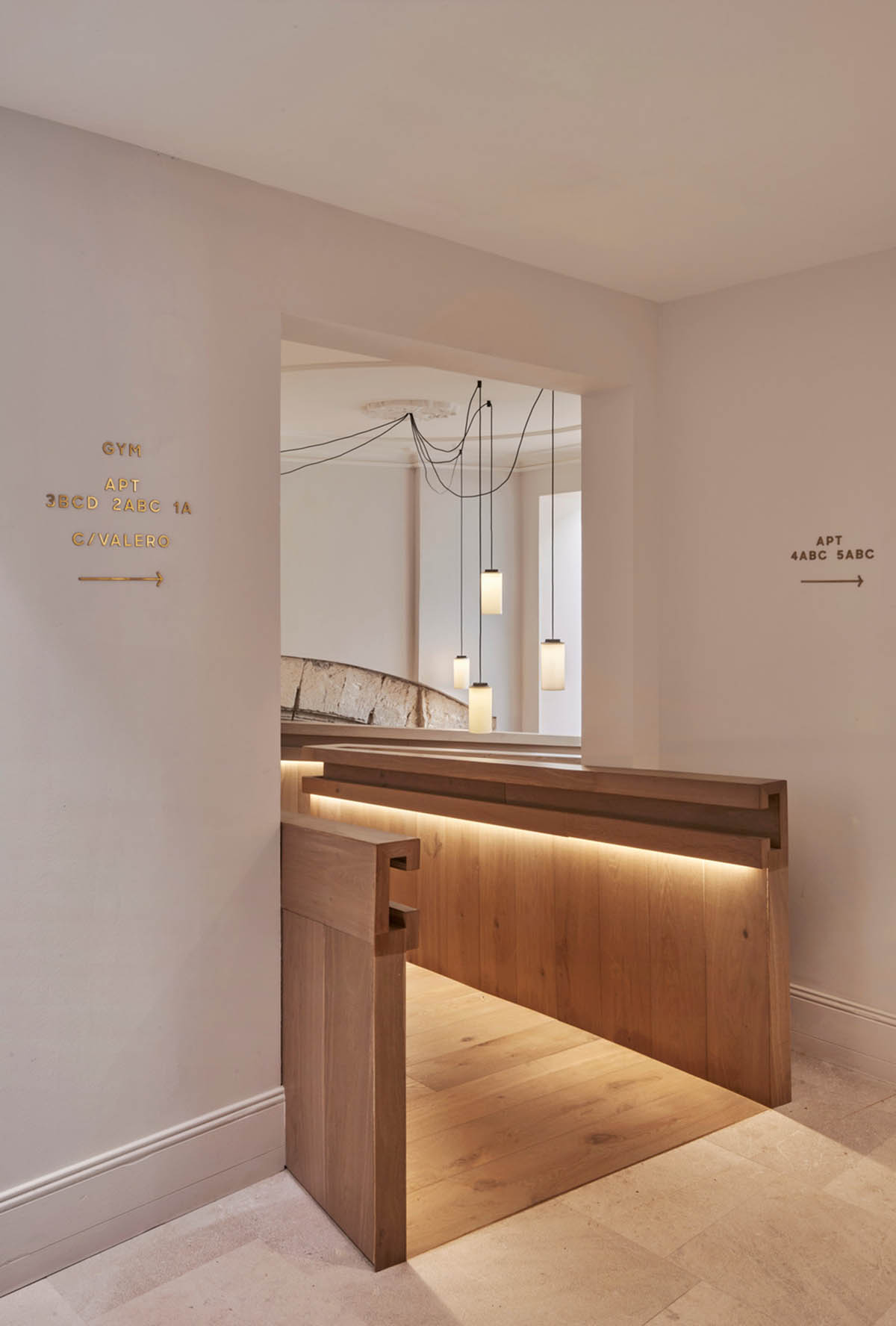
Wooden walkway
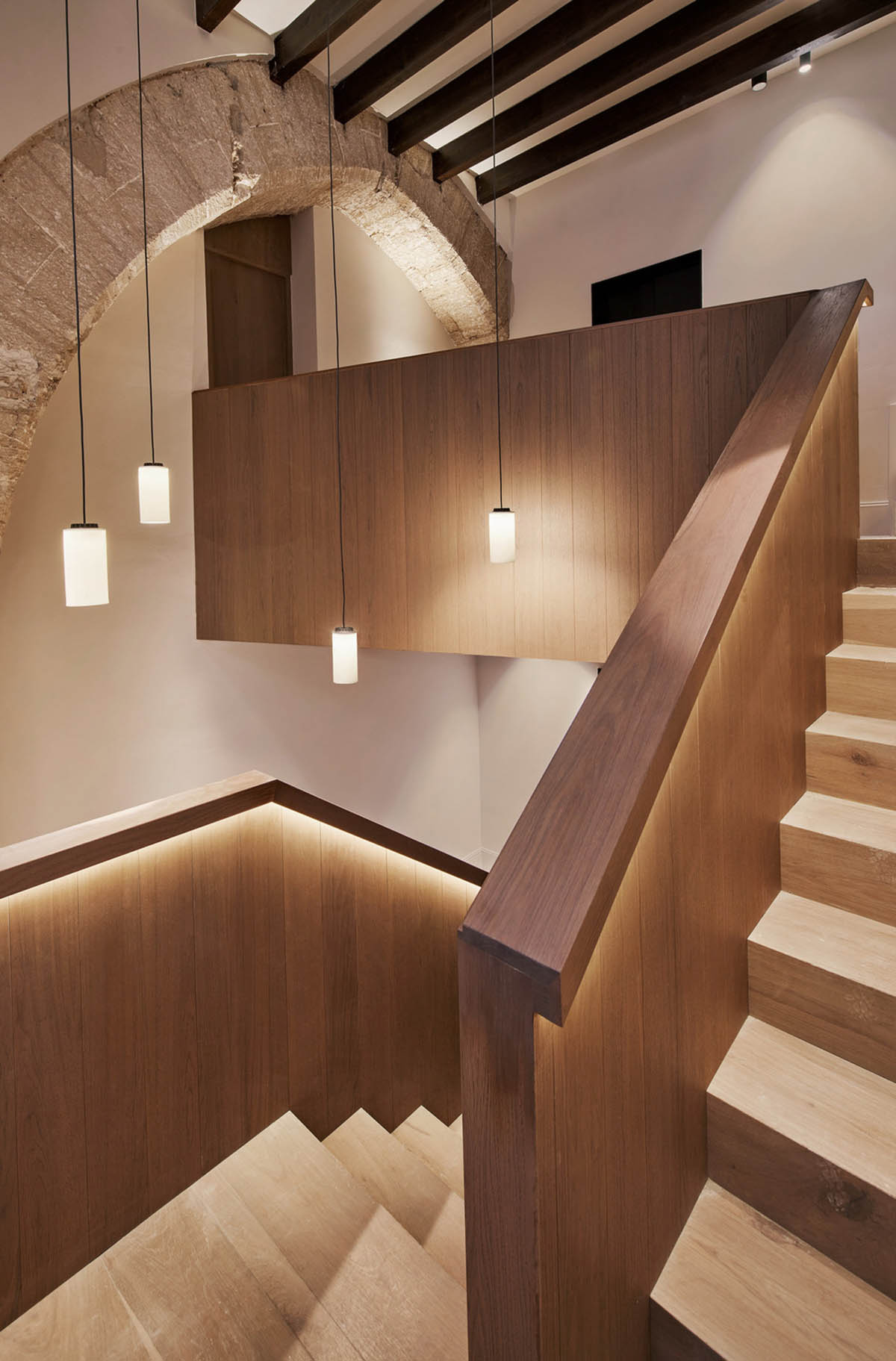
Stairs
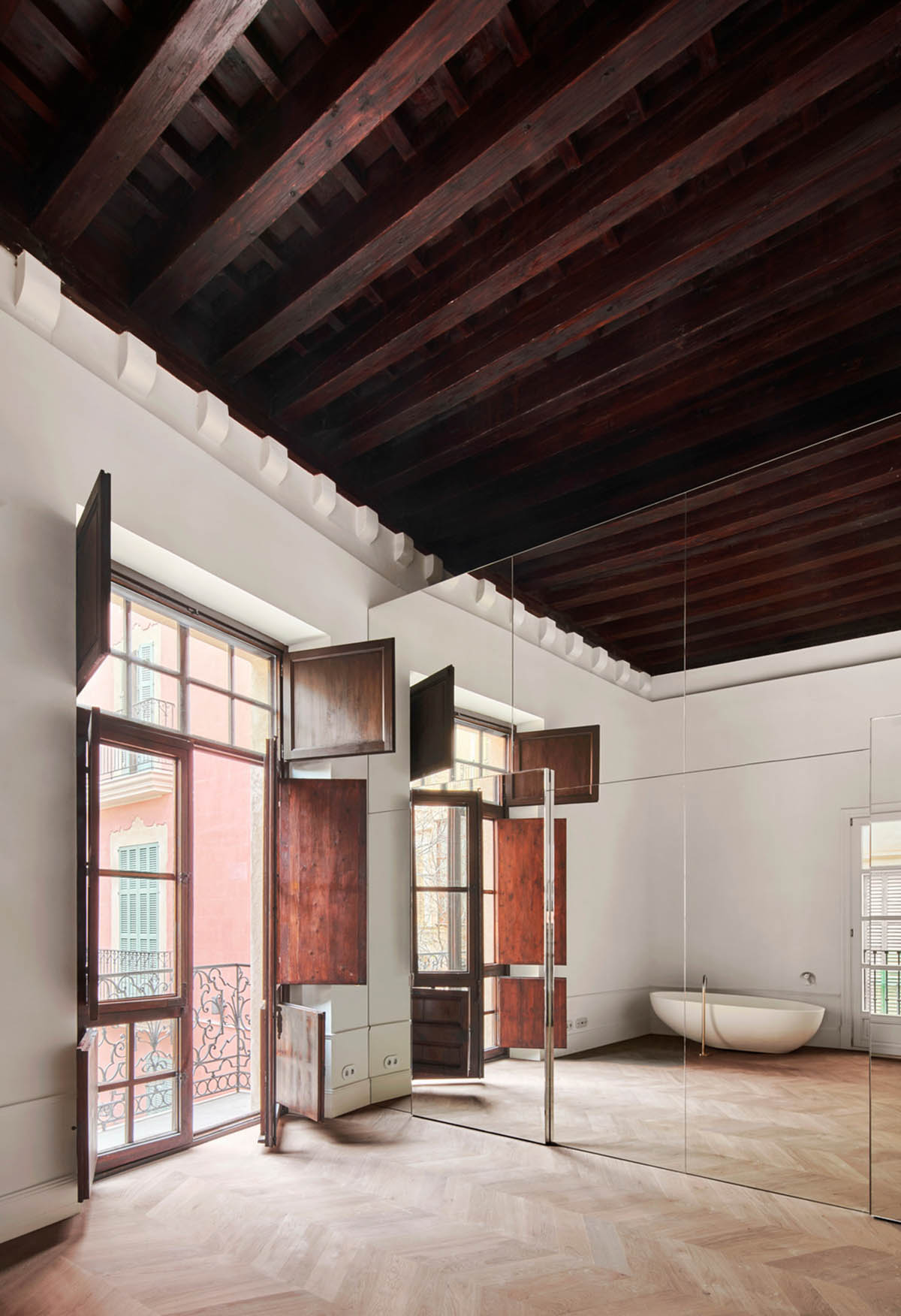
Interior - Apartments
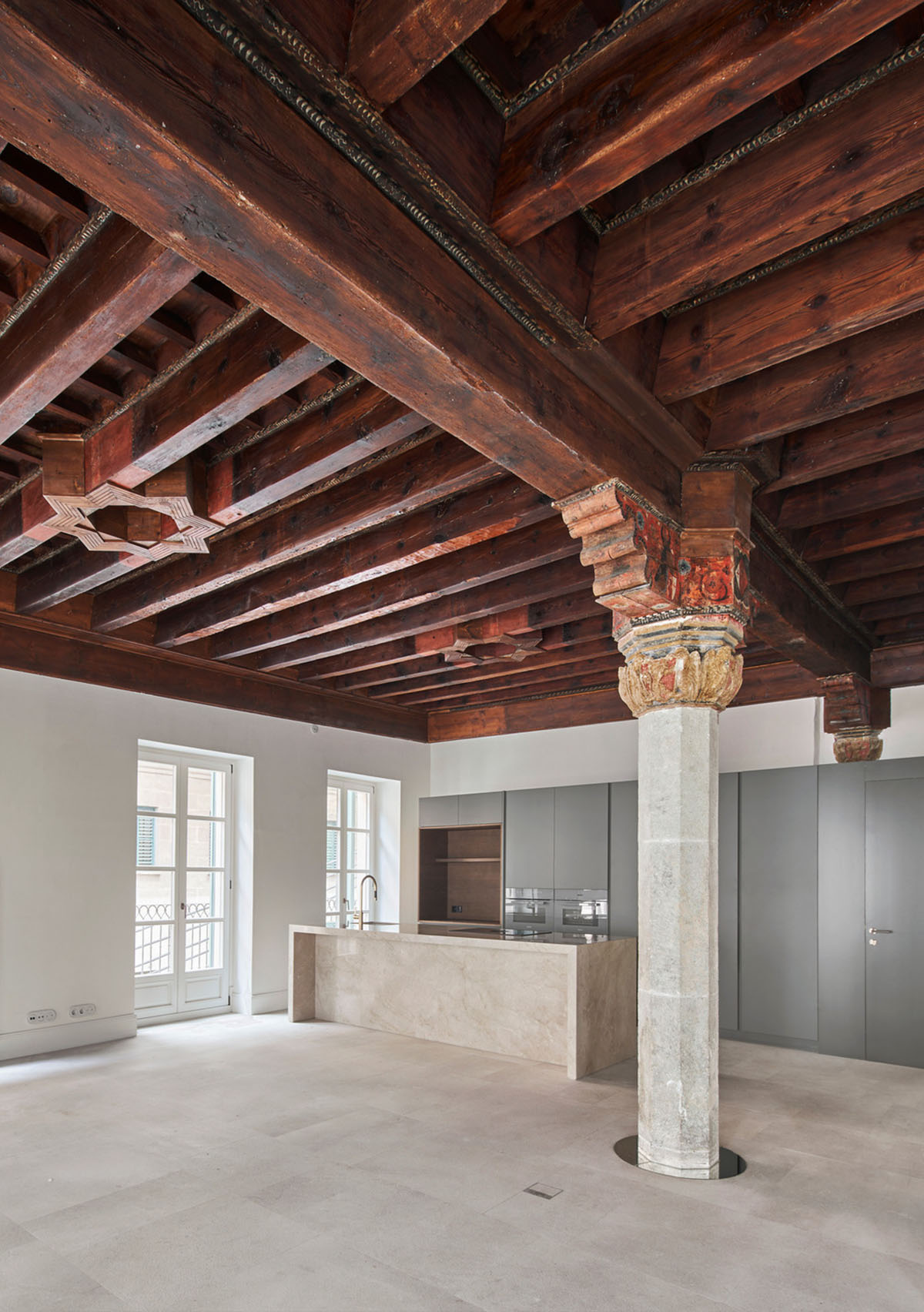
Apartment - Coffered ceiling
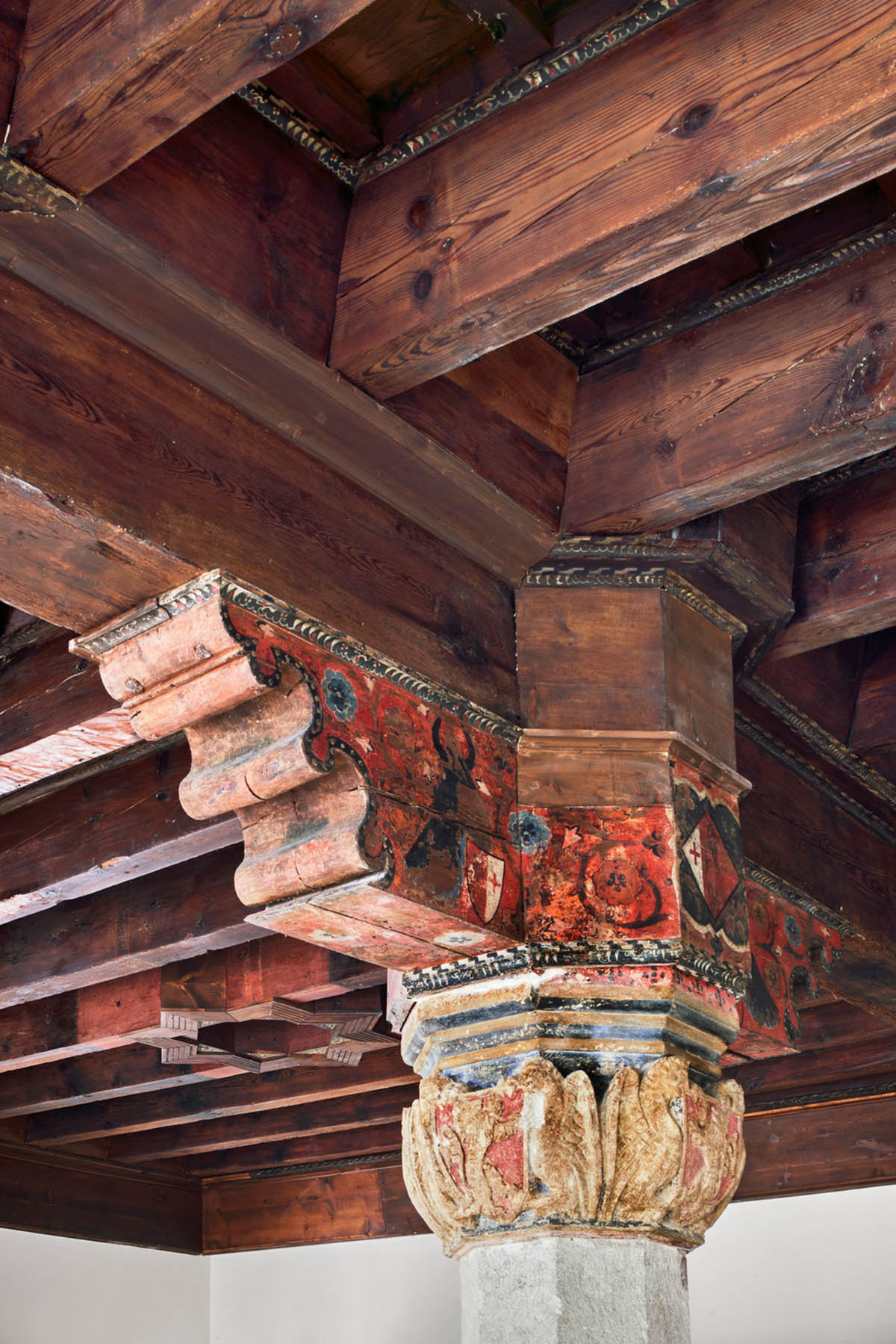
Coffered ceiling
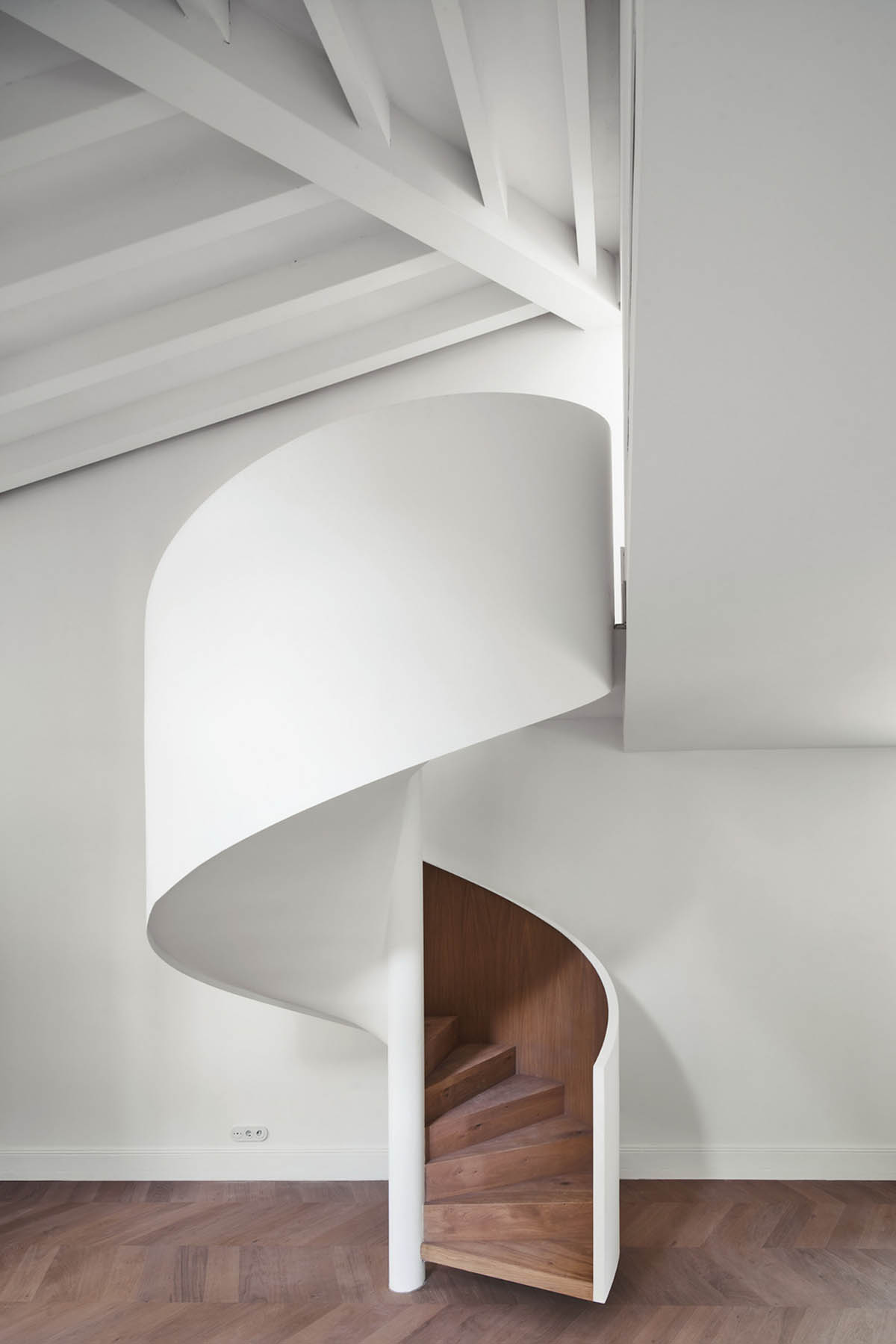
Spiral staircase
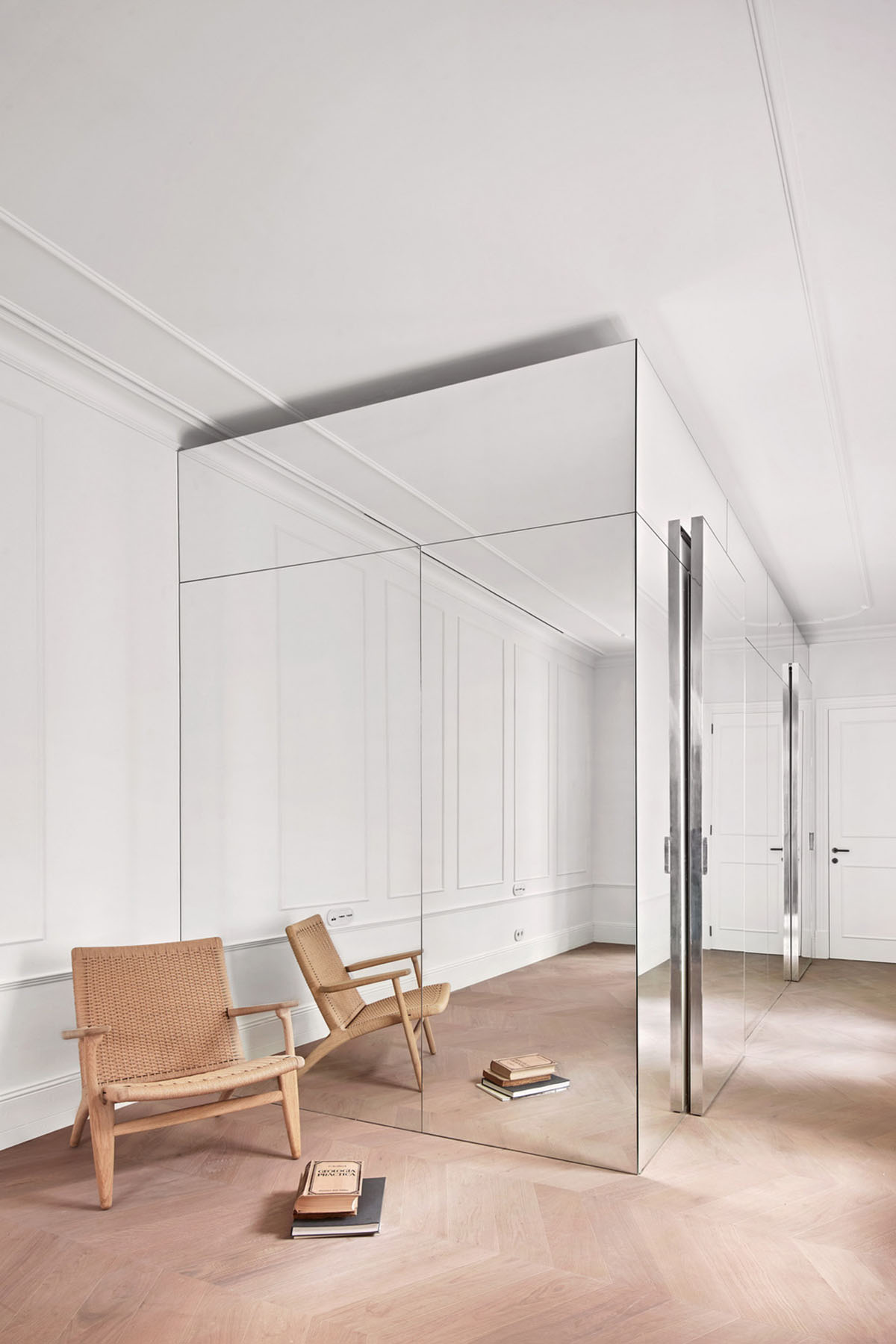
Interiors - Apartments
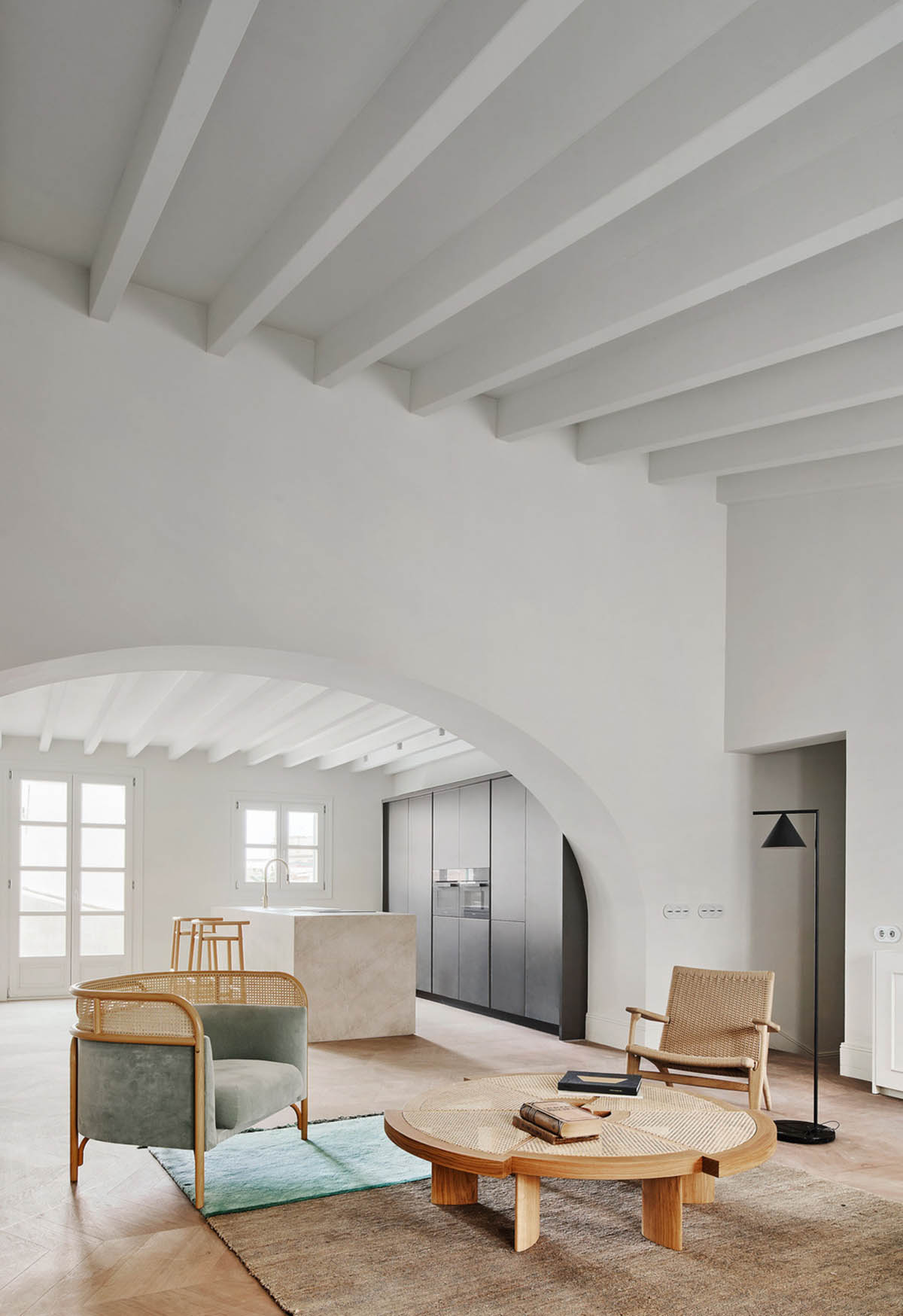
Interiors - Apartments
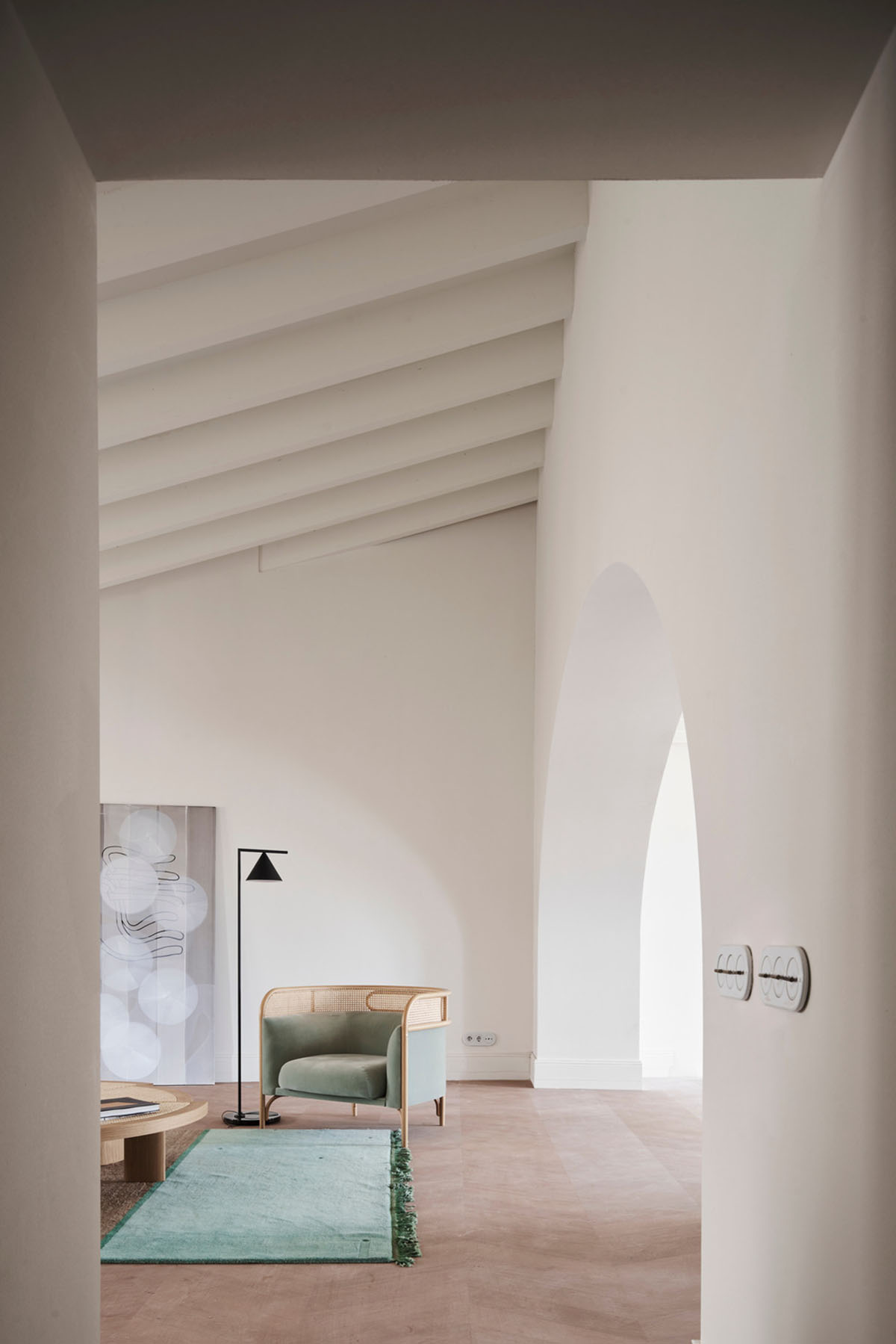
Interiors - Apartments
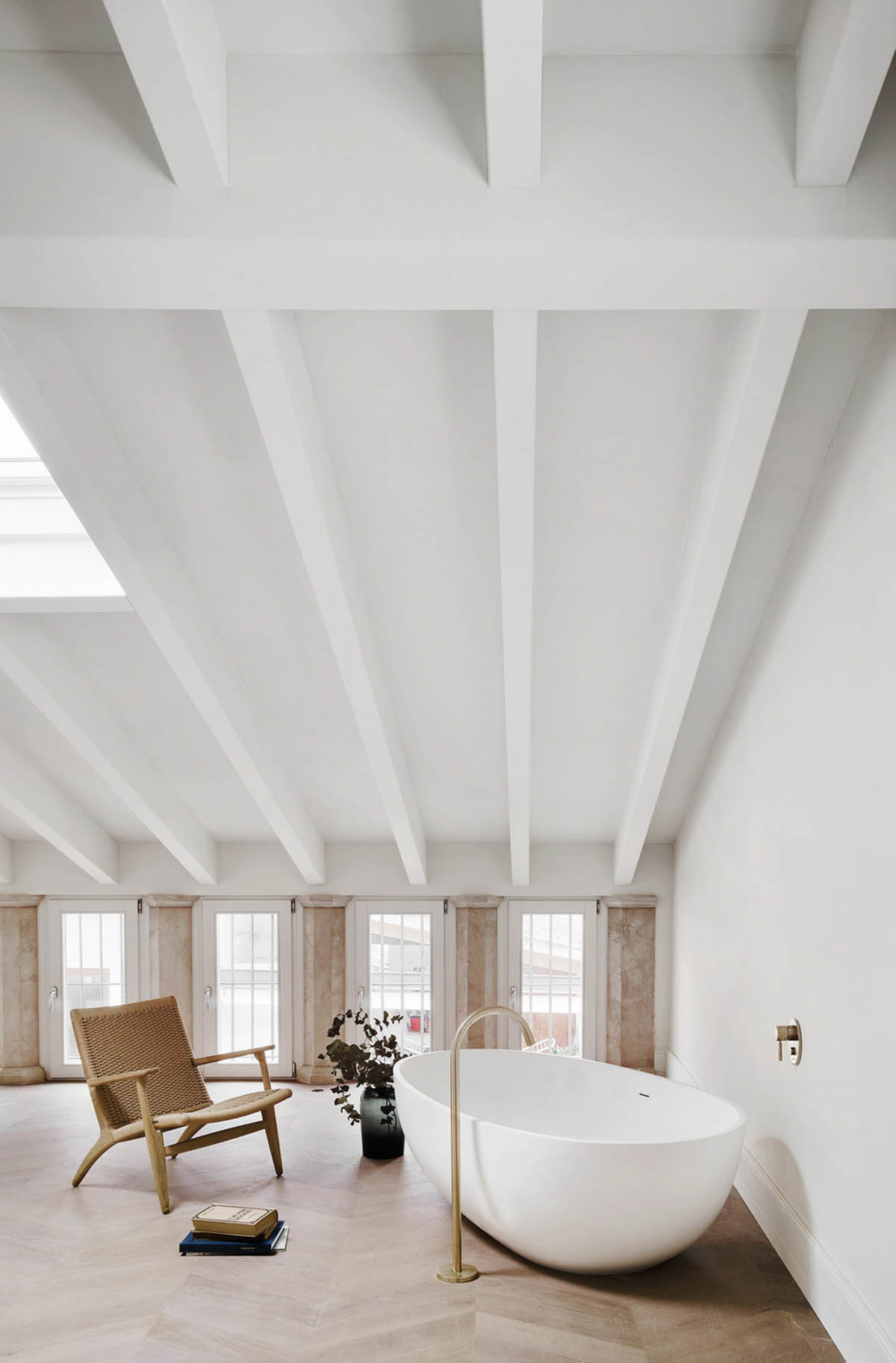
Interiors - Apartments
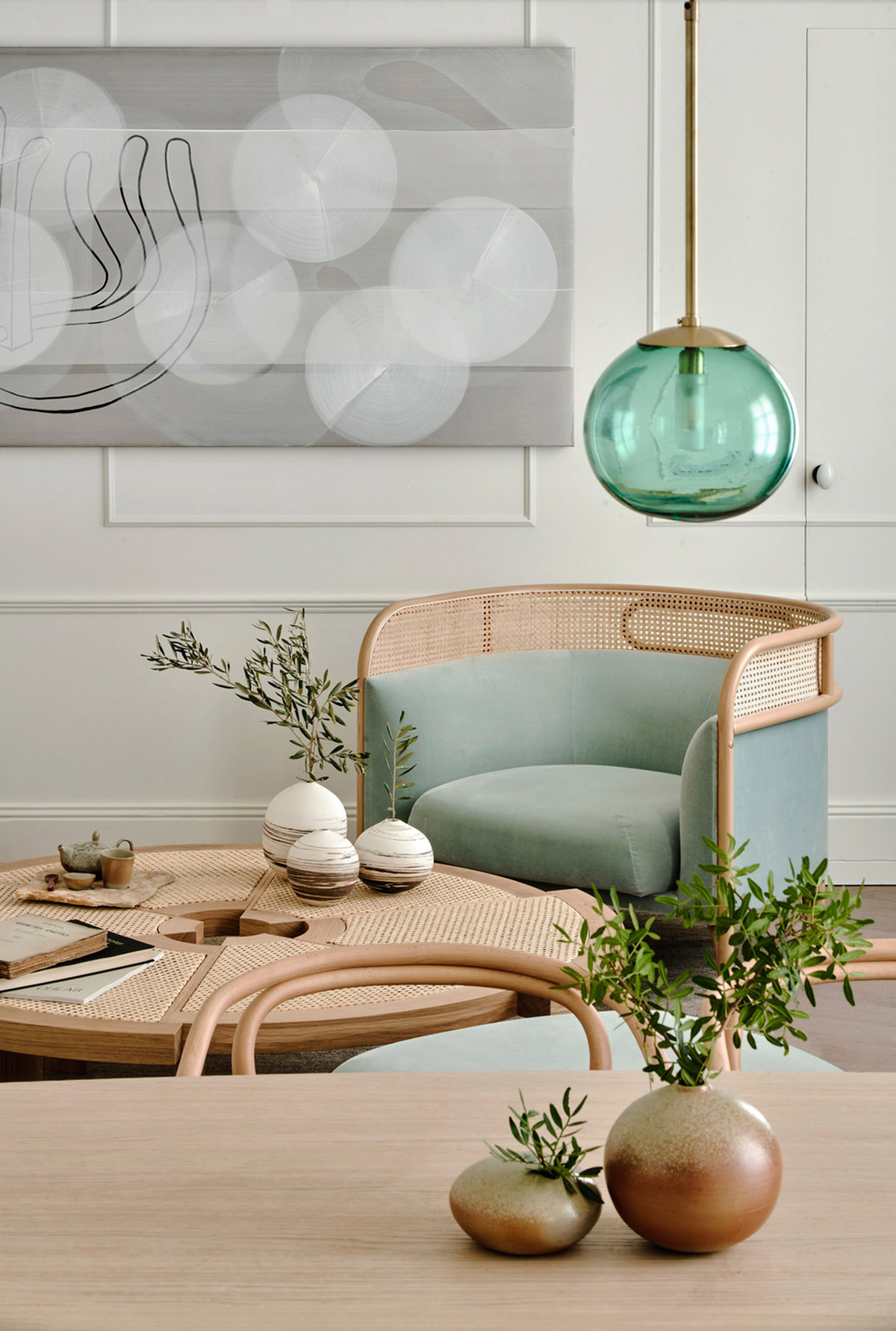
Interiors - Apartments
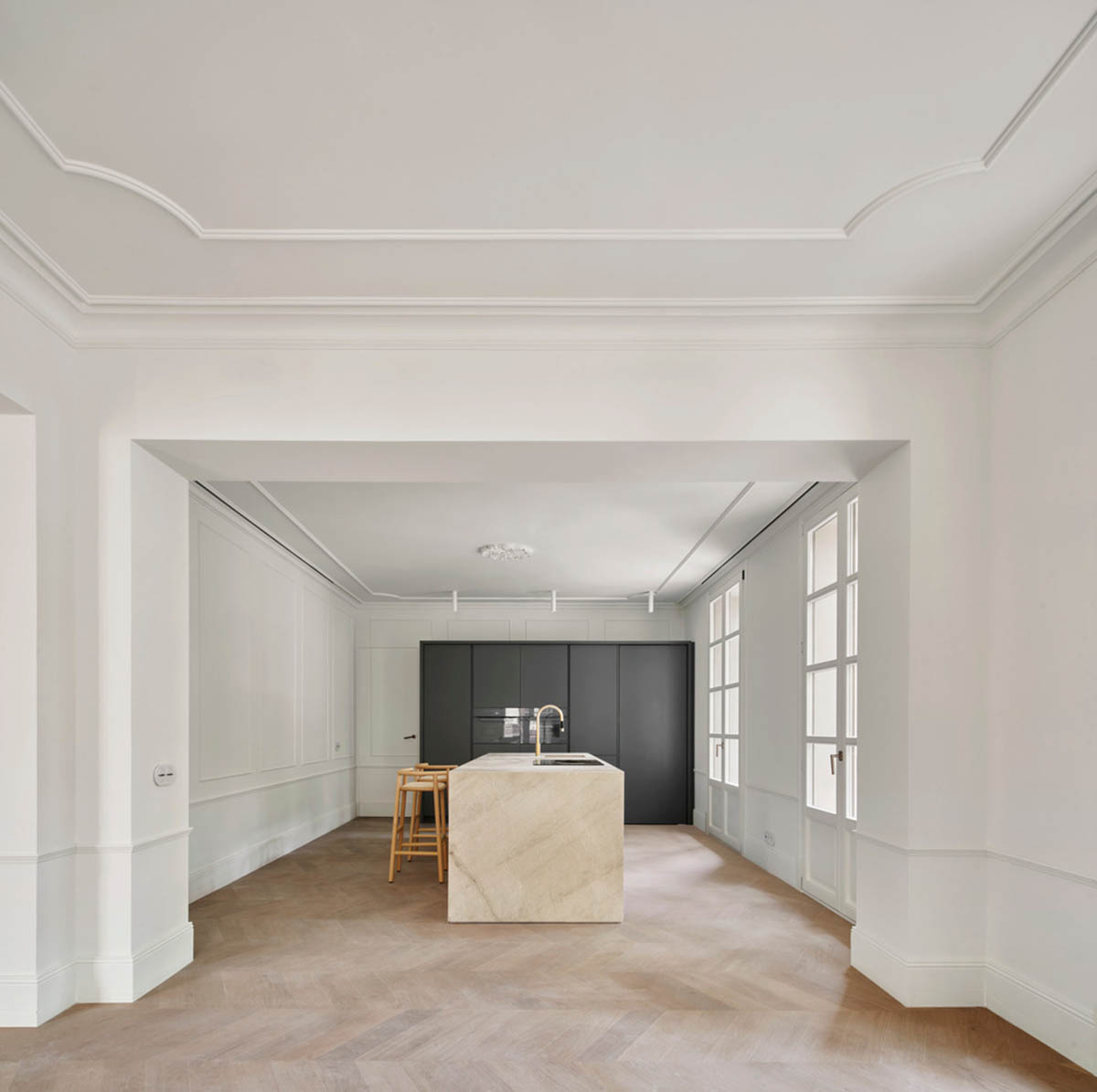
Interiors - Apartments
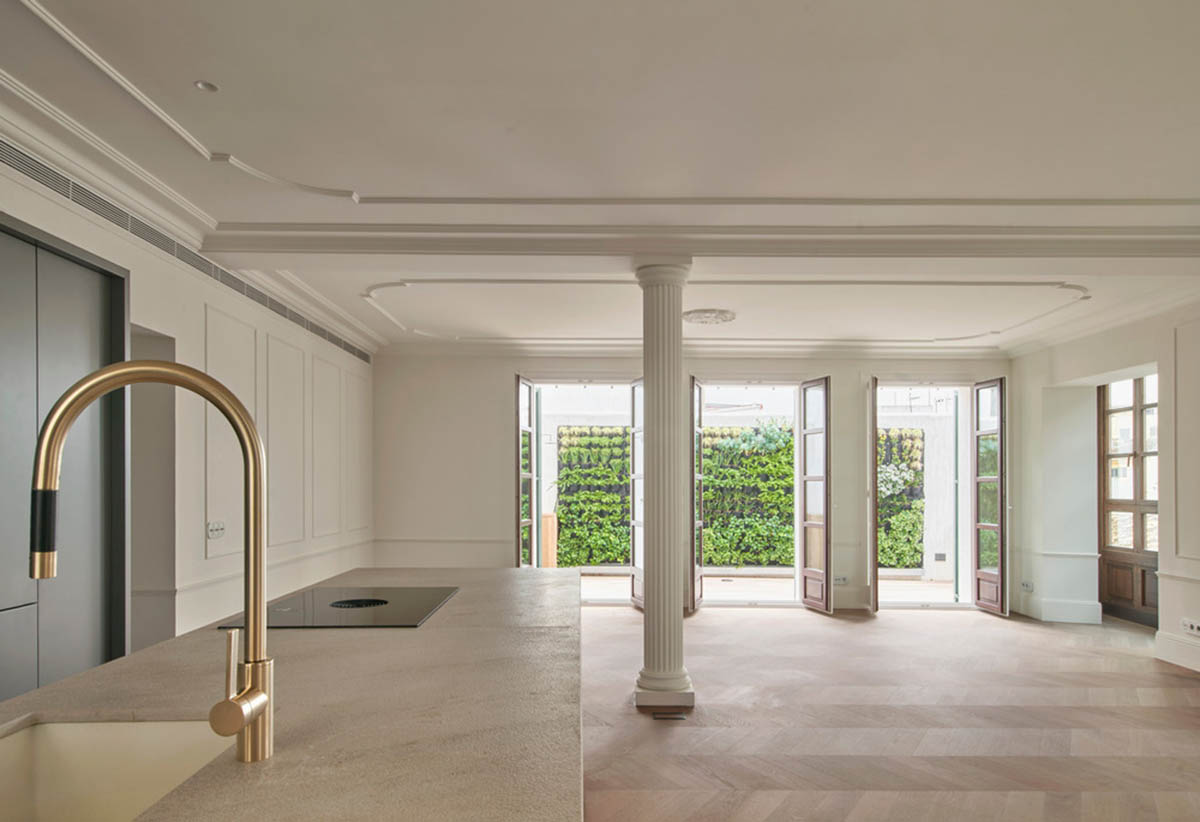
Interiors - Apartments
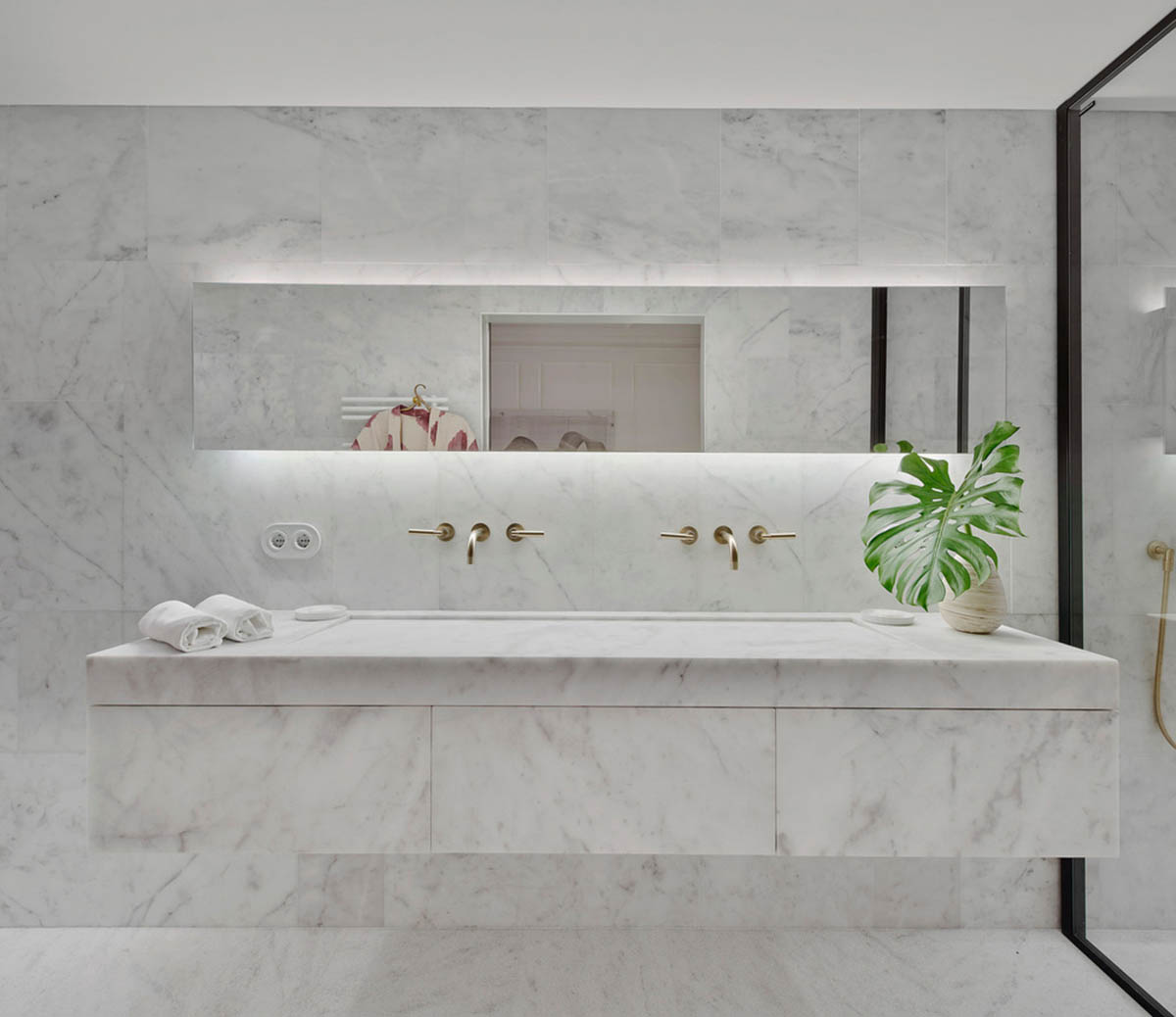
Bathroom
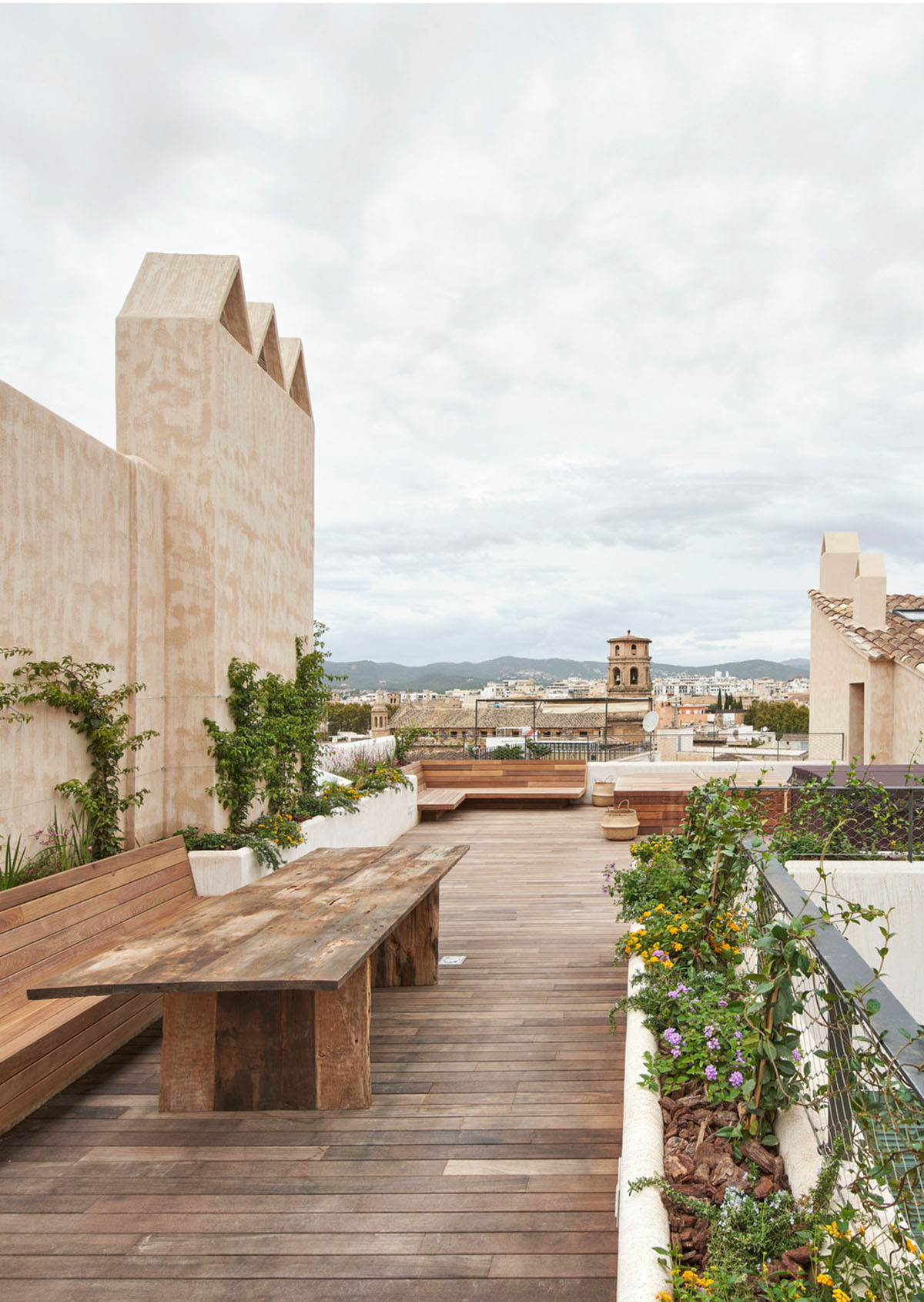
Rooftop
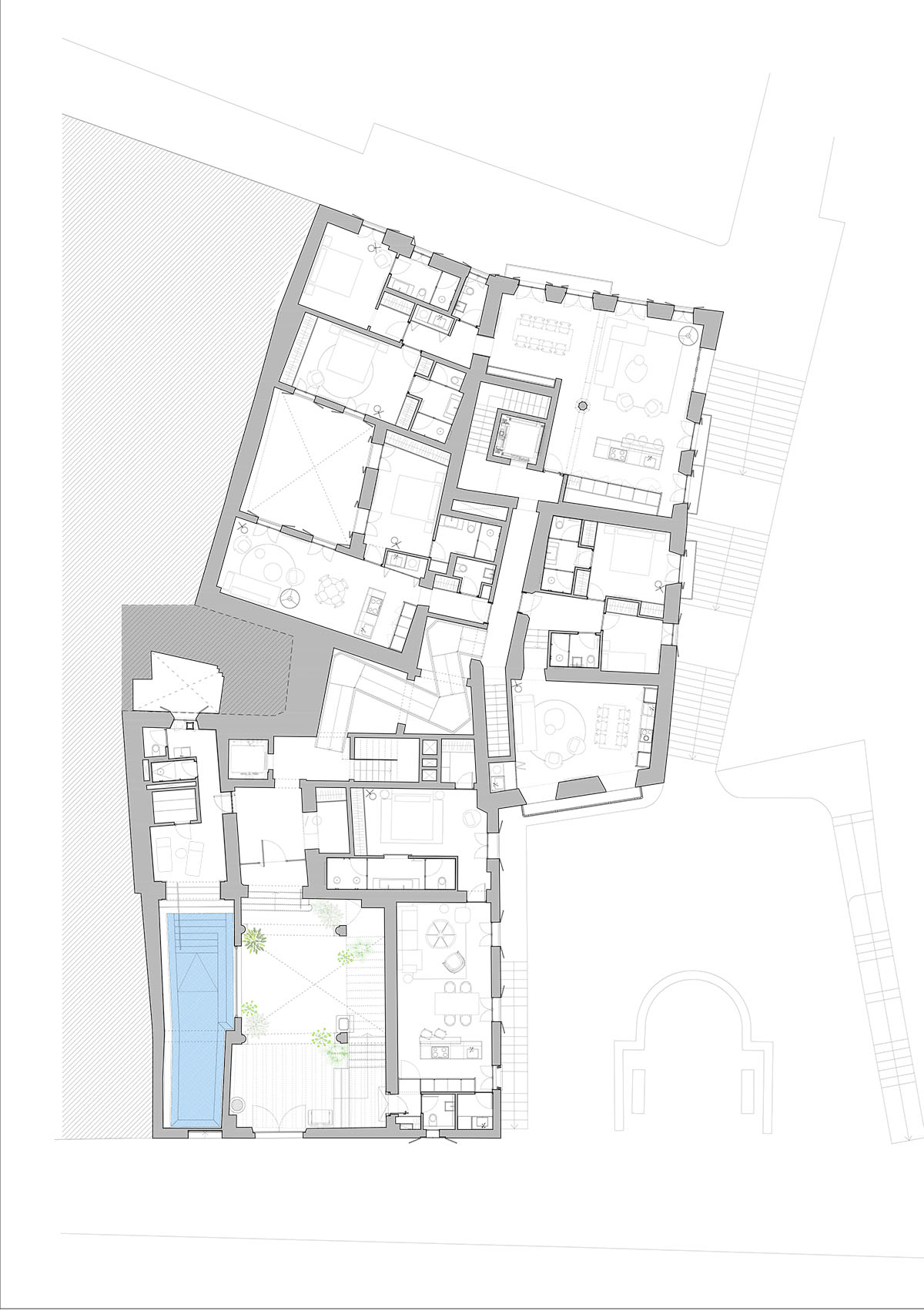
Ground floor plan
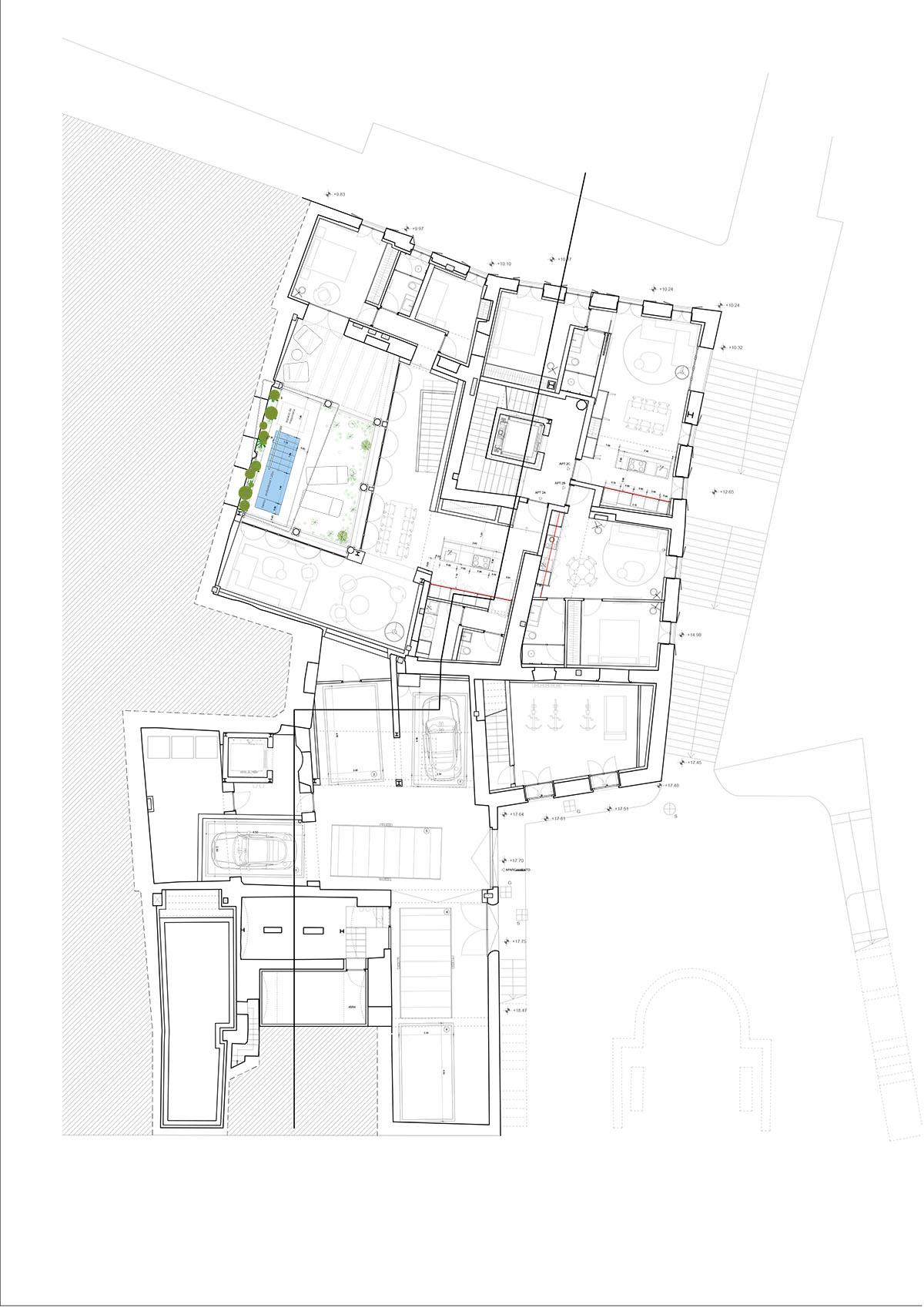
Floor plan 1
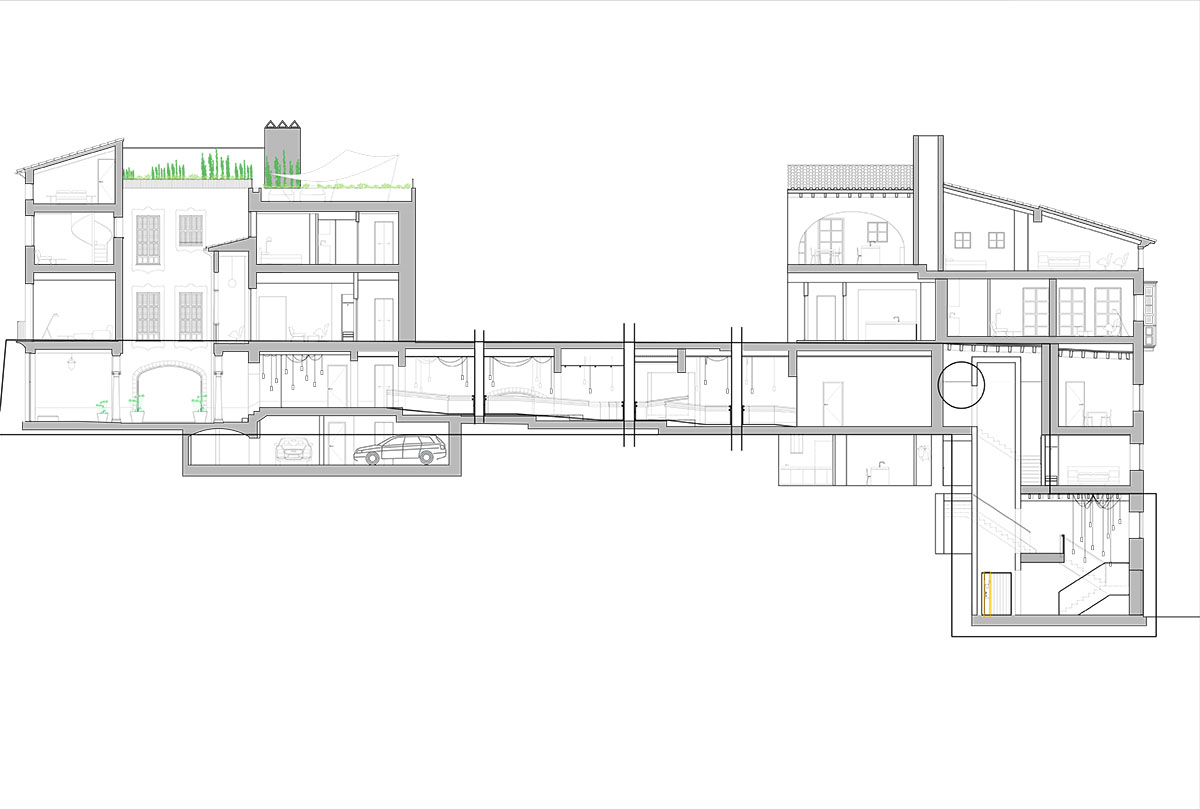
Section
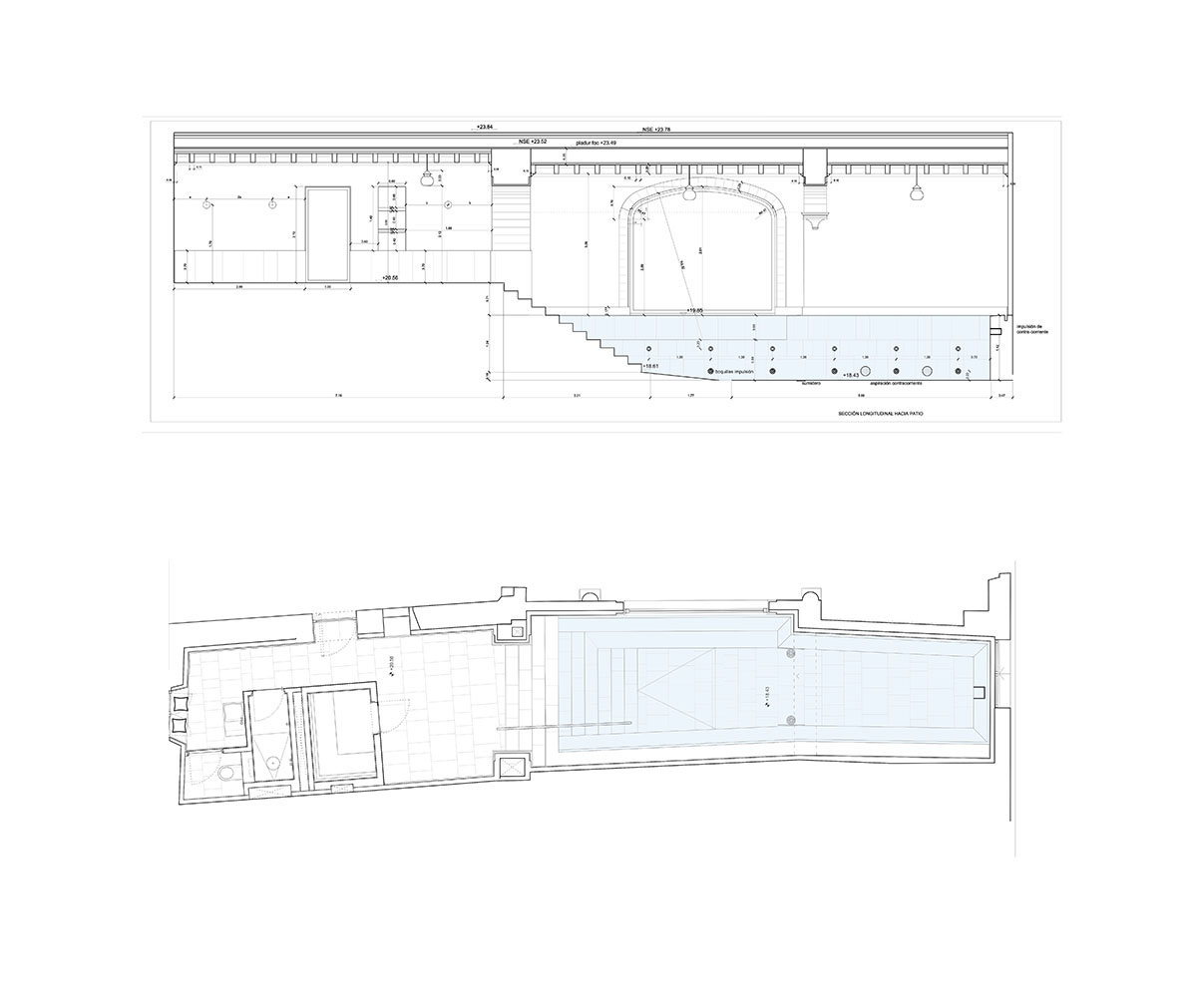
Pool
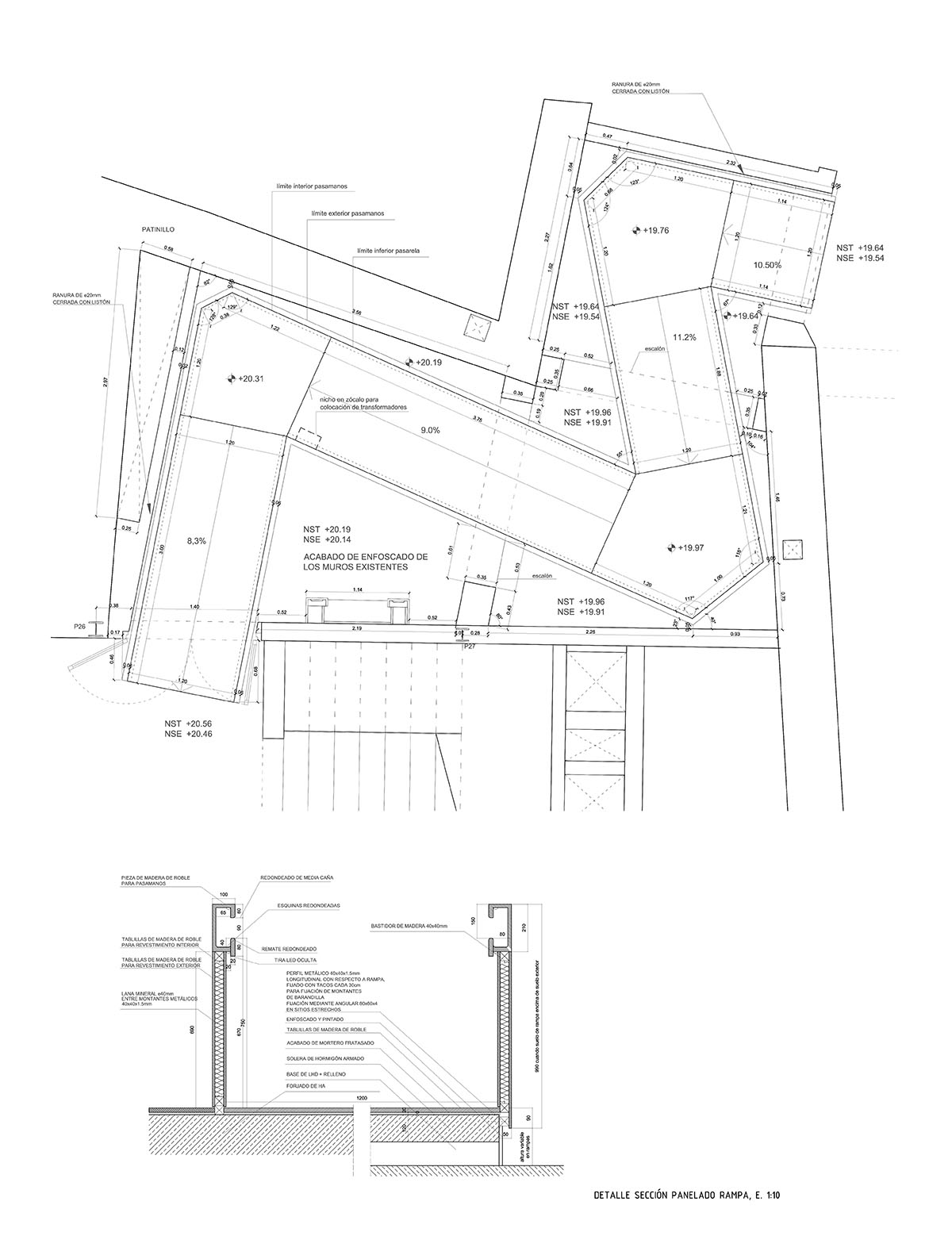
Wooden walkway
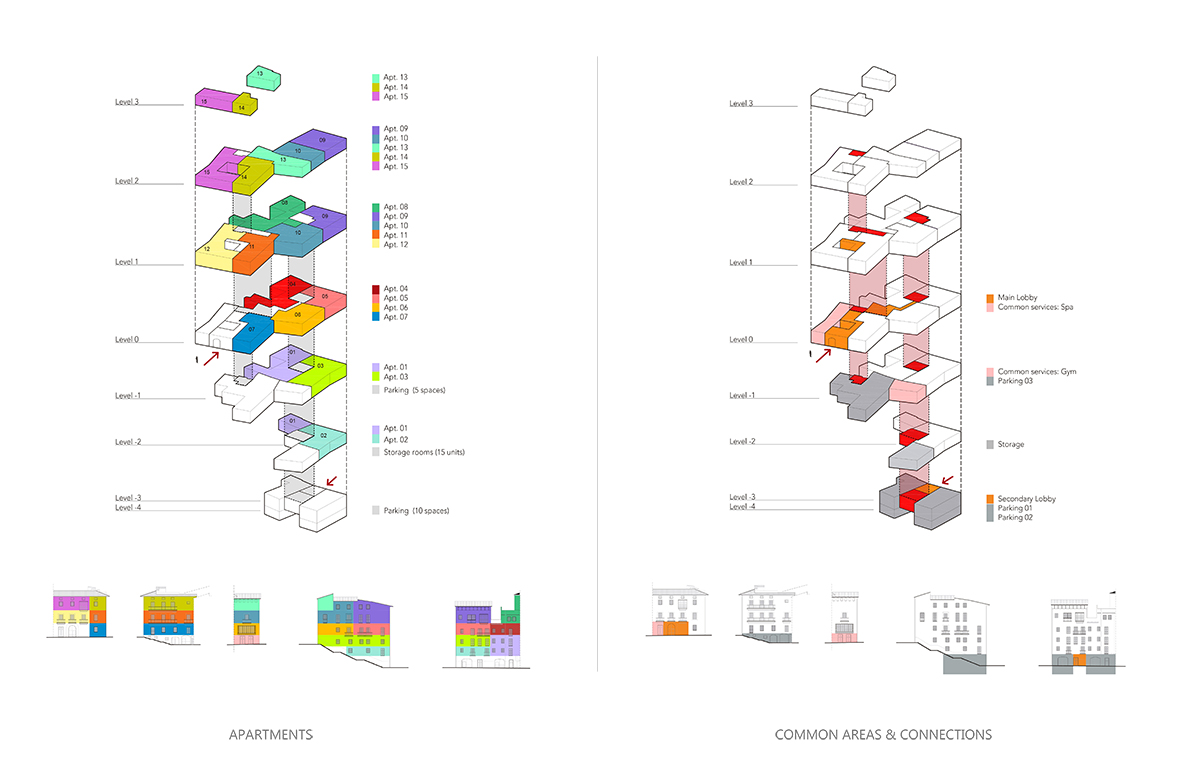
Axonometric drawing
OHLAB, directed by Paloma Hernaiz and Jaime Oliver, is an award-winning office devoted to urban analysis and cultural research of contemporary society through design, architectural practice and urban strategy.
The office was originally established in Shanghai, then moved to Madrid and currently has offices in Palma de Mallorca and New York.
OHLAB designed Casa Palerm, an elongated villa was designed as an extension of a rural hotel in the countryside of Lloret de Vistalegre, in the centre of Mallorca, Spain.
Project facts
Architecture and interior design: OHLAB / oliver hernaiz architecture lab
Team OHLAB: Paloma Hernaiz, Jaime Oliver with Rebeca Lavín, Robin Harloff, Maria Bruna Pisciotta, Mercé Solar, Luis Quiles, Silvia Morais, Ángela Suárez, Wiktoria Ginter, Camila Ospina, Pedro Rodríguez, Laura Colomer, Eusebiu Spac, Agustín Verdejo.
Building engineer: Jorge Ramón
Structural Engineering consultant: AMM Technical group
Facilities Engineering: AMM Technical group
Kitchen design: Espacio Home Design
All images © José Hevia.
All drawings © OHLAB.
> via OHLAB
